Luis Suarez challenges Tabarez to restore Uruguay's reputation - again

When Oscar Tabarez managed Uruguay at the 1990 World Cup, he acknowledged that part of his job was to restore the reputation of his nation. Uruguay had disgraced itself at the 1986 tournament with some brutal tackling that culminated in Jose Batista being sent off after 56 seconds of the group game against Scotland - still the fastest red card in World Cup history - something that had at the time been justified by reference to "garra."
"Garra" is the quality that supposedly has enabled Uruguay, a nation of 3.5million people, to win two World Cups, to fight eye-to-eye with far larger countries. The word literally means "claw" but encompasses spirit, grit determination and streetwiseness. Tabarez, who has Che Guevara's command to "toughen yourself without losing your tenderness" written on the wall of his house in Montevideo, was determined to express the positive connotations of the term.
He did that to an extent in 1990, and with profound success since taking the job for the second time in 2007. His Uruguay has been tough, ruthless, pragmatic and resilient, and, in reaching the semifinal four years ago and winning the Copa America a year later, has stayed broadly on the right side of the line separating what is acceptable from what is not. Luis Suarez has taken them across that line.
Luis Suarez banned nine matches, four months from all soccer activity
Tabarez himself has yet to offer much of a public reaction, either to Suarez's bite on Giorgio Chiellini or his ban for from all football for four months and from nine international games. The Uruguay Football Federation, though, has spoken, and its reaction perhaps explains why Suarez's issues have not been tackled before.
The head of the federation, Wilmar Valdez, has indicated Uruguay will appeal against the ban, insisting that the evidence is not conclusive and claiming that photographs showing bite marks on Chiellini's neck have been manipulated, while the minister of tourism and sport, Liliam Kechichian called the sanction "excessive." Others in the federation have blamed FIFA, Brazil (who could face Uruguay in the World Cup quarterfinal), Italy and, most bafflingly of all, the British media.
Suarez said after scoring twice against England that he had been motivated by criticism of him in the British press, a genuinely bizarre response for somebody who last season was voted Footballer of the Year by the Football Writers Association despite having been convicted of racially abusing one opponent and biting another the previous season. And as anybody who has witnessed the seemingly endless loop of the latest biting incident on Brazilian television can attest, this is not just a British obsession. Biting is big news.
The previous heaviest punishment dispensed by FIFA for an on-field offense was the eight-game ban given to Mauro Tassotti after he elbowed Spain midfielder Luis Enrique in the face during the 1994 World Cup quarterfinal. Given Luis Enrique suffered a broken nose and lost a pint of blood, Suarez's apologists might perhaps argue that he has been hard done by given he left his victim with nothing more serious than a few marks on his shoulder.
Perhaps there is something irrational about football's revulsion at biting - but there is some logic: a bad tackle or a flailed arm is at least an extension of something that happens in the game anyway. There seems to be an appreciation that sometimes the red mist descends and the arm is raised not for leverage in leaping for a header, but to hurt, or the foot is extended not to the ball, but above it: the consequences may be severe but at least the offense is understandable. Biting seems to come from a very different place indeed; it seems somehow unnatural.
Luis Suarez is the Hottest Player on the Planet, But Can He Keep His Cool?
The severity of he sanction also takes into account the fact that this is the third time Suarez has bitten an opponent. As well as the nine games for Uruguay, the four-month suspension means Suarez will miss nine Premier League games, one Capital One Cup game and three Champions League games - taking to 39 the total of matches he'll have missed in his career through bans for biting. If Liverpool feels aggrieved at that, given the offense didn't happen on its watch, it's hardly surprising, and on Thursday it was still investigating the possibility of a separate appeal.
The positive for Liverpool is that this may make other clubs less likely to attempt to sign Suarez, partly for reasons of reputation and partly because there's little point acting now to sign a player who won't even be able to begin official training until the end of October. Then again, there must be a limit even to Liverpool's patience. If a player has bitten three times in the past, who is to say he won't bite again?
The first step to redemption, perhaps, would be for Suarez for once to take responsibility for his actions and stop trying to blame others. After all, the best way to stop the media talking about you biting people is to not bite people at all.
GALLERY: Biting in Sports
Biting In Sports
Luis Suarez and Giorgio Chiellini
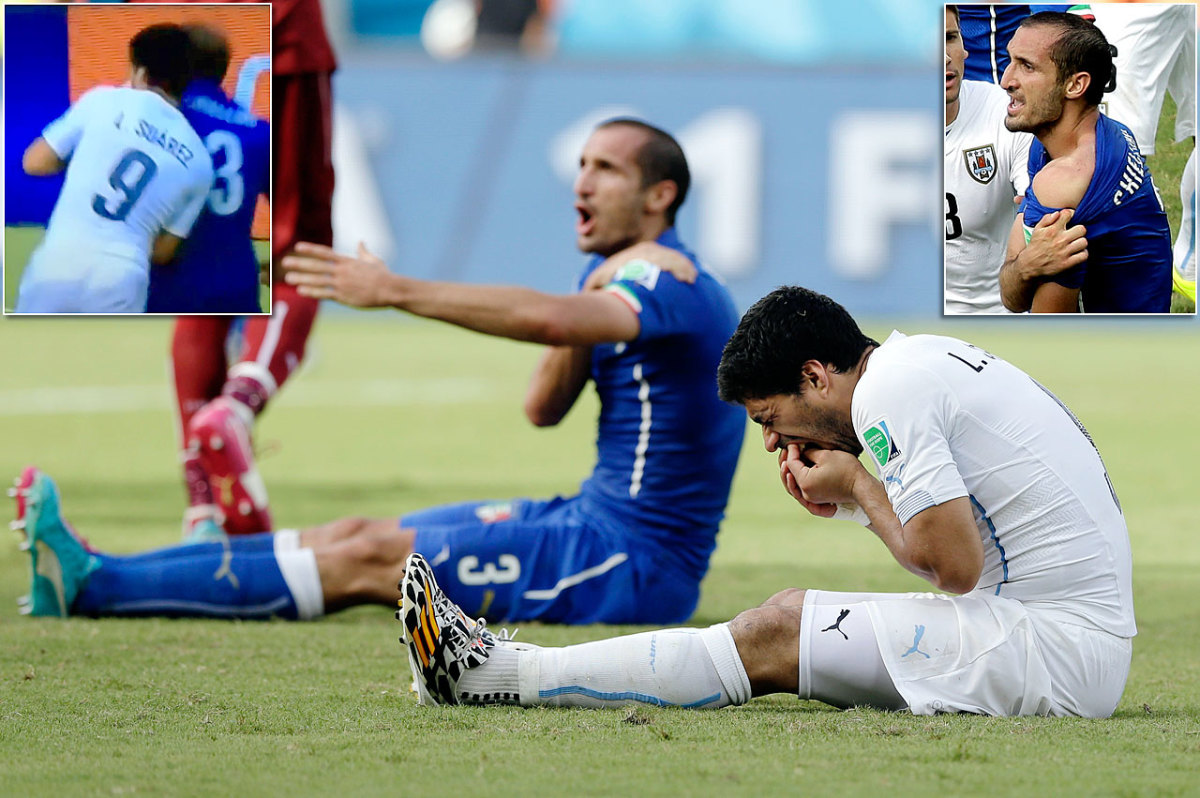
With Uruguay chasing a result it would eventually get, Suarez appeared to bite Italy defender Giorgio Chiellini, marking the third time he has sunk his teeth into an opponent. Suarez is under intense scrutiny for just about everything he does, so the fact that this is an issue again is just an asinine development. Chiellini pulled his shirt down to show the marks to referee Marco Rodriguez -- who, ironically, is nicknamed ChiquiDracula -- but Suarez was not disciplined for the incident. The powers that be at FIFA might act differently.
Luis Suarez and Branislav Ivanovic
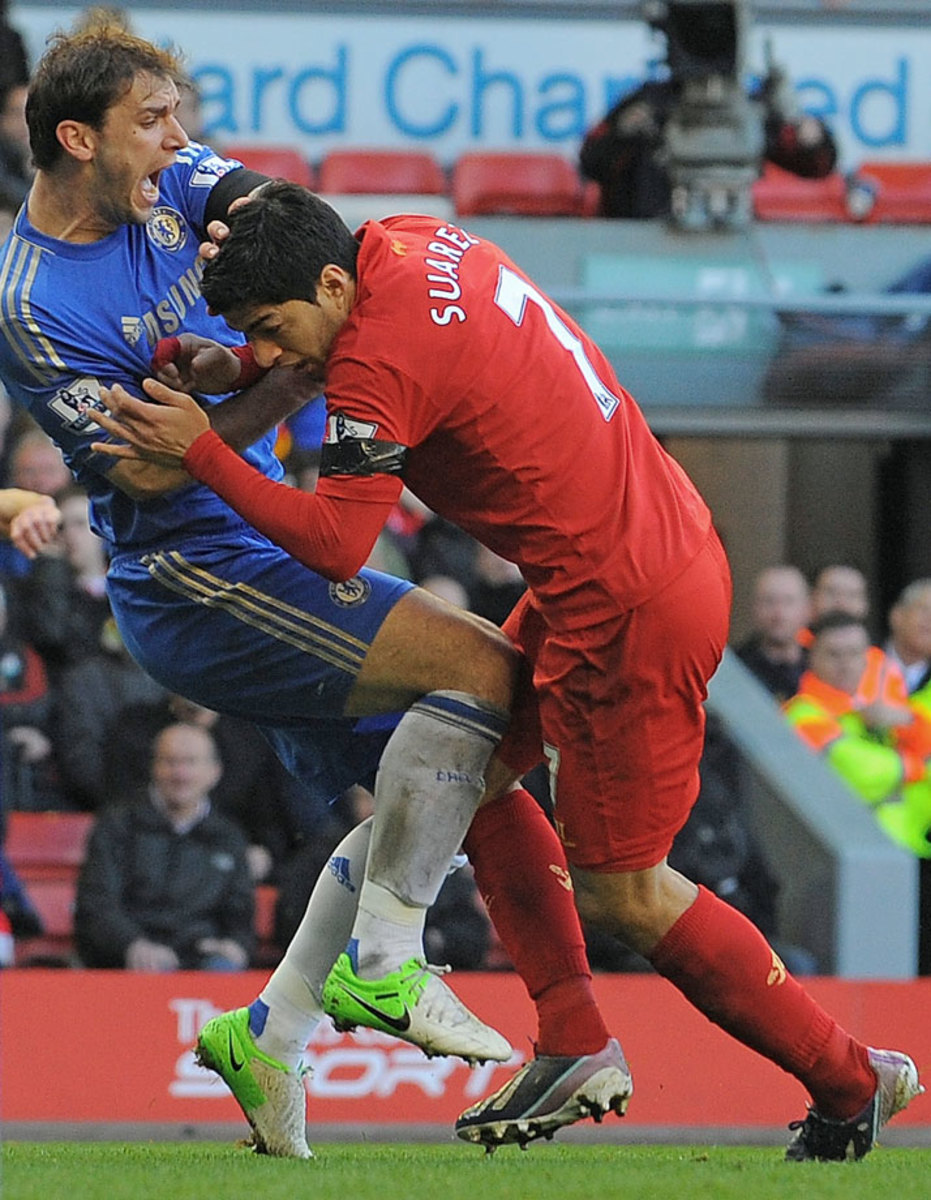
Liverpool striker Luis Suarez of Uruguay bit Chelsea defender Branislav Ivanovic's arm during a Premier League match on April 21, 2013, before scoring his 30th goal of the season - a last-gasp equalizer - to clinch a 2-2 draw. "For my unacceptable behavior yesterday, the club has fined me today,'' Suarez wrote on his Twitter and Facebook accounts. Suarez did not face a police investigation after Ivanovic said he did not want to press charges. "He had no apparent physical injuries and did not wish to make a complaint,'' Merseyside Police said in a statement. Suarez was suspended for seven matches in 2010 while playing for Ajax after biting a player.
Mike Tyson and Evander Holyfield
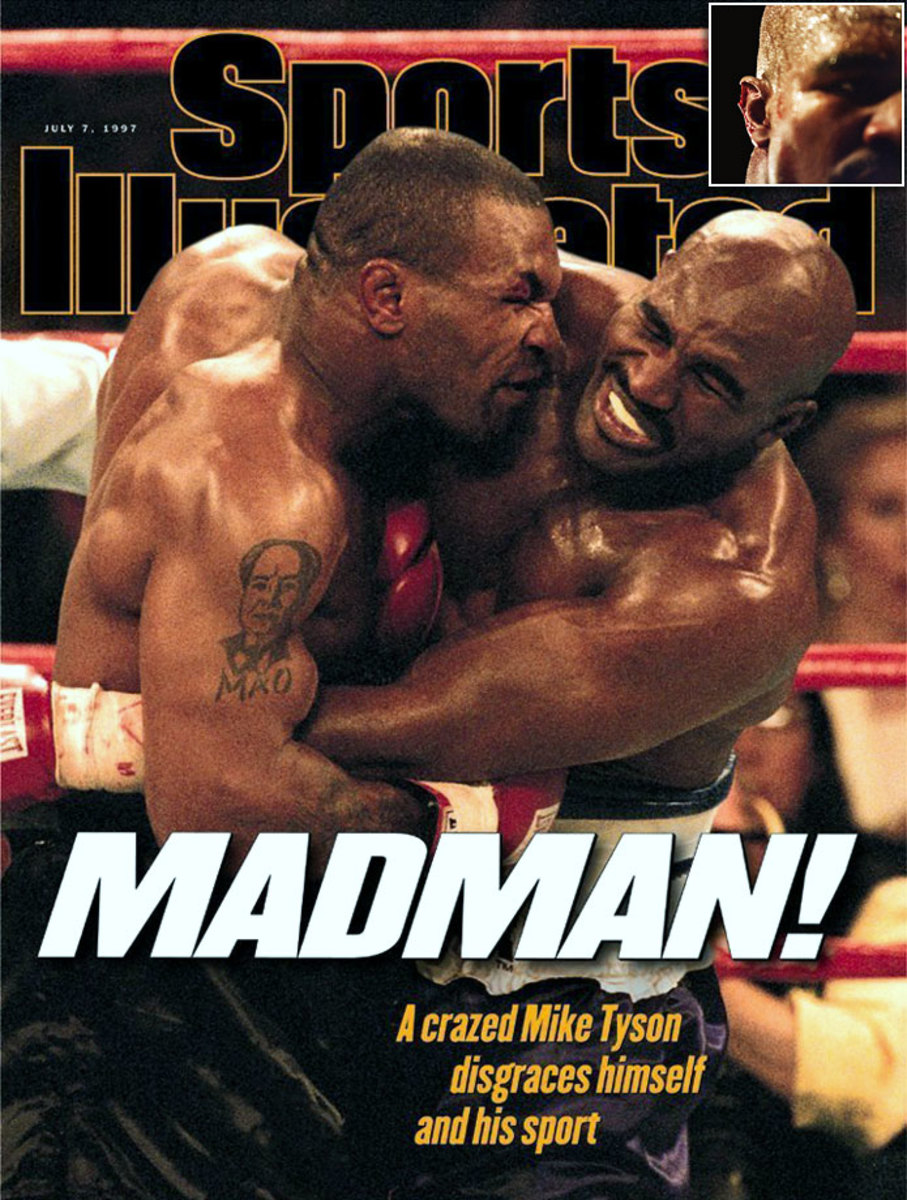
In the most famous biting incident in sports history, Mike Tyson took a chunk of Evander Holyfield's ear during the third round of their June 1997 heavyweight match. Tyson was disqualified and fined $3 million.
Alex Burrows and Patrice Bergeron
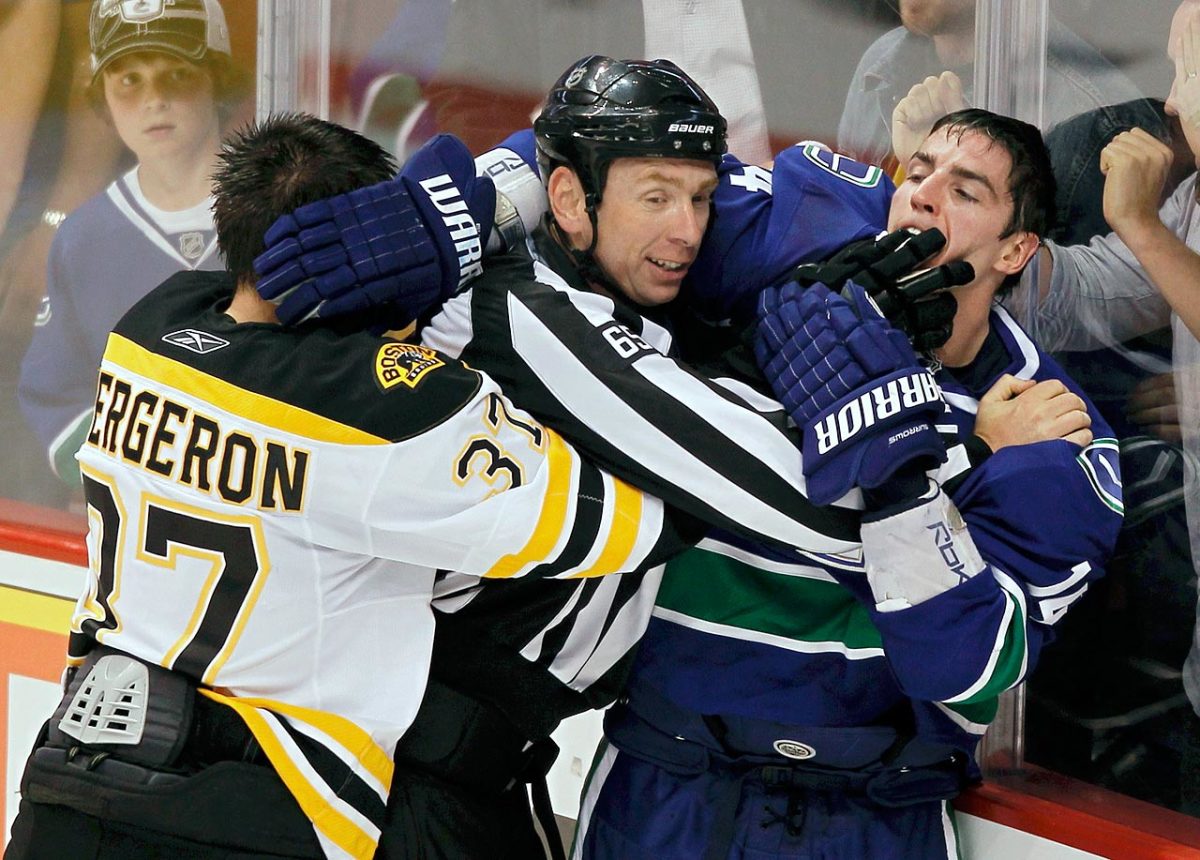
Canucks winger Alex Burrows appeared to bite the right finger of Bruins center Patrice Bergeron during the first game of the 2011 Stanley Cup finals. Bergeron was seen wearing a bandage on his finger after the game. Mike Murphy, the NHL's Senior Vice President of Operations, announced the following day that Burrows would not be suspended for the incident. "After reviewing the incident, including speaking with the on-ice officials, I can find no conclusive evidence that Alex Burrows intentionally bit the finger of Patrice Bergeron," Murphy wrote in a release issued by the NHL.
Jarkko Ruutu and Andrew Peters
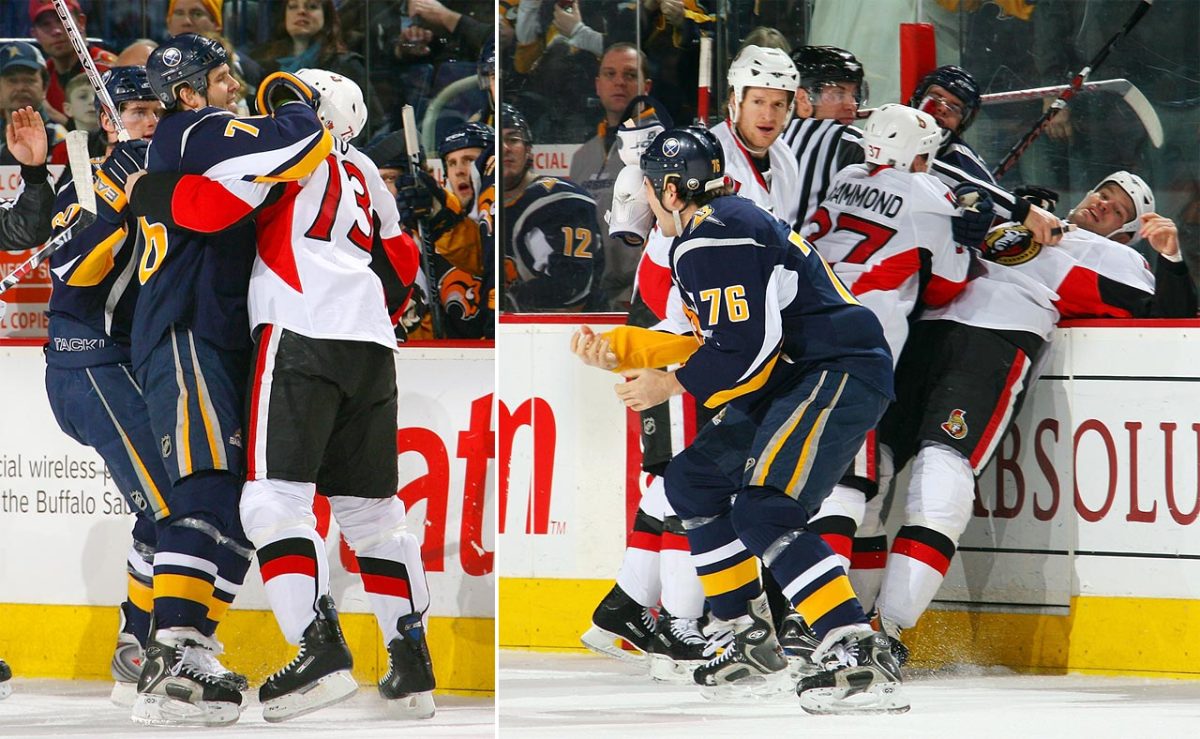
In 2009, Senators right wing Jarko Ruutu made headlines after he allegedly bit the thumb of Sabres' enforcer Andrew Peters. Though Ruutu denied the incident, he was suspended for two games and fined $31,700.
Mikhail Grabovski and Max Pacioretty
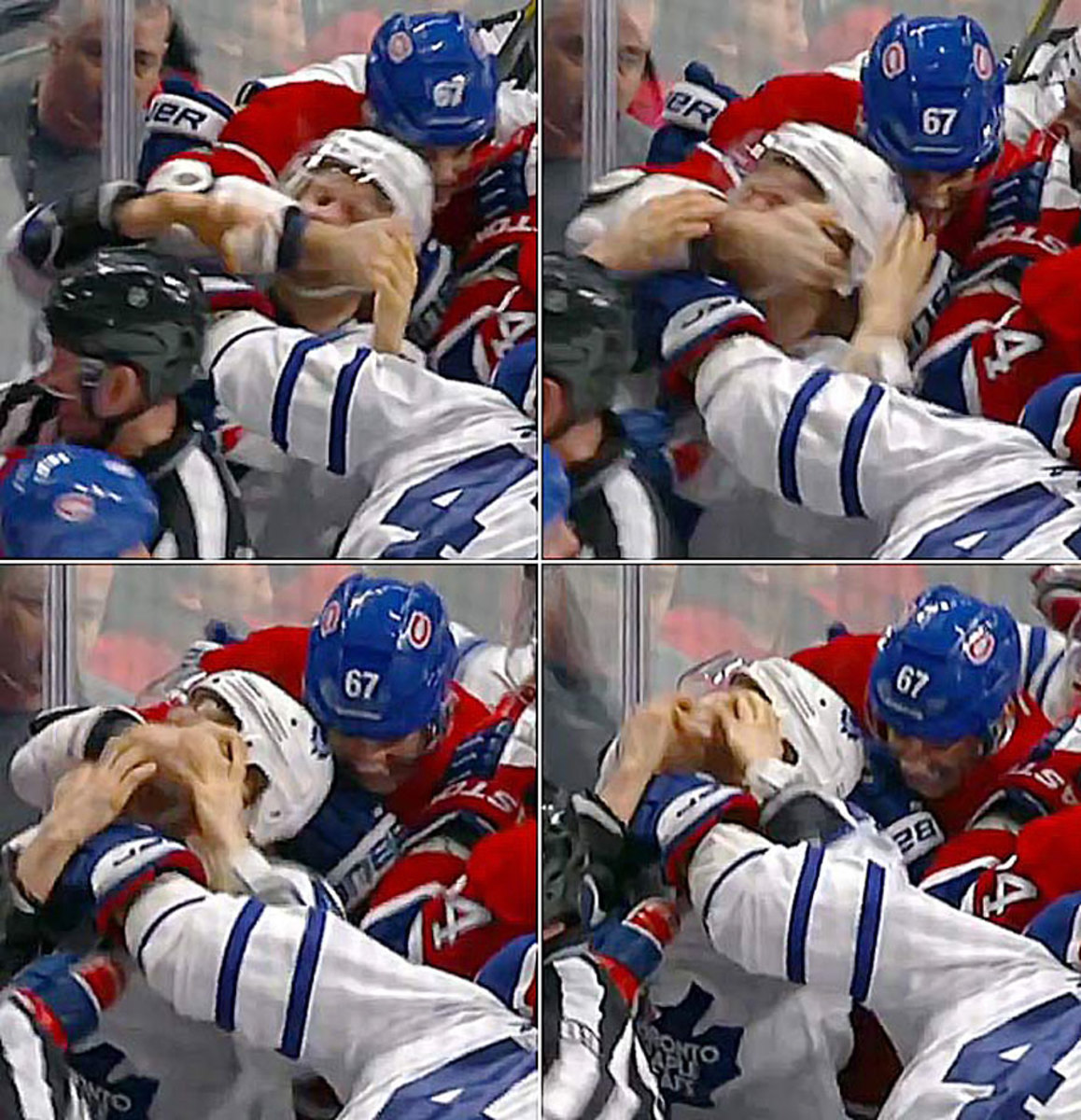
Maple Leafs forward Mikhail Grabovski faced a disciplinary hearing with the NHL after he was accused of biting Canadiens forward Max Pacioretty during a fight at 11:30 of the third period in Toronto's 6-0 win over Montreal on Saturday, Feb. 9, 2013. Grabovski received a 10-minute misconduct and a roughing minor after the scuffle. Pacioretty was also issued a 10-minute misconduct for the play in which he emerged showing his wrist to the officials, claiming that Grabovski had put the chomp on him. Grabovski got off without being disciplined by the league, but he is hardly the first NHL player who's been accused of biting. As former head coach Craig MacTavish once said, "Guys get hungry...in the third period."
Claude Lemieux and Jim Peplinski
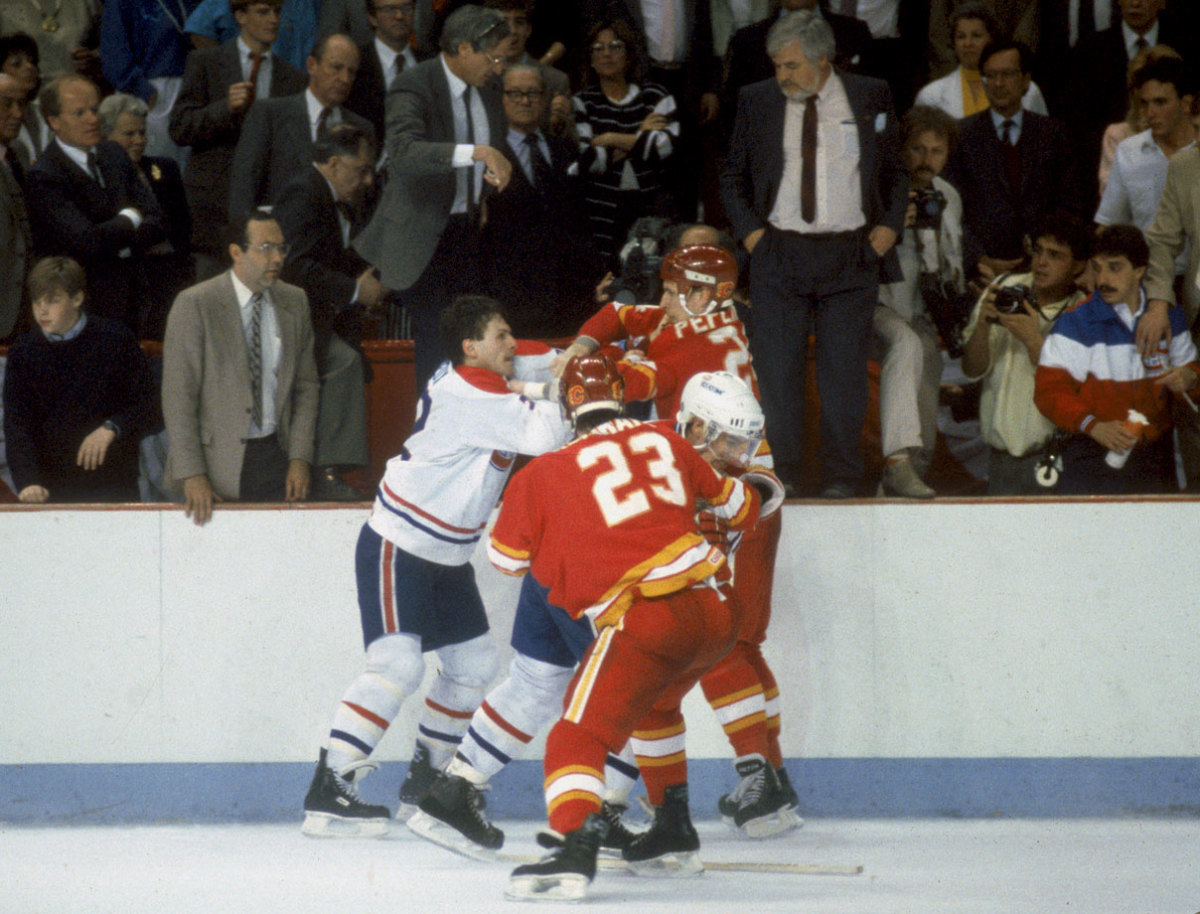
One of the most famous NHL incidents occurred during the 1986 Stanley Cup Final when Canadiens agitator Claude Lemieux (left) got into a scrap with Calgary's Jim Peplinski. Lemieux scratched at Peplinski's eyes and the bit the Flames' forward's finger to the bone. "I was skating to the penalty box and showed the bloody finger to (referee) Denis Morel," Peplinski later recalled to the Toronto Globe and Mail . "He said, 'How do I know you didn't do it to yourself?'" Peplinski got a tetanus shot and remarked, "I didn't know they allowed cannibalism in the NHL." Here's the video of the incident .
Tree Rollins and Danny Ainge
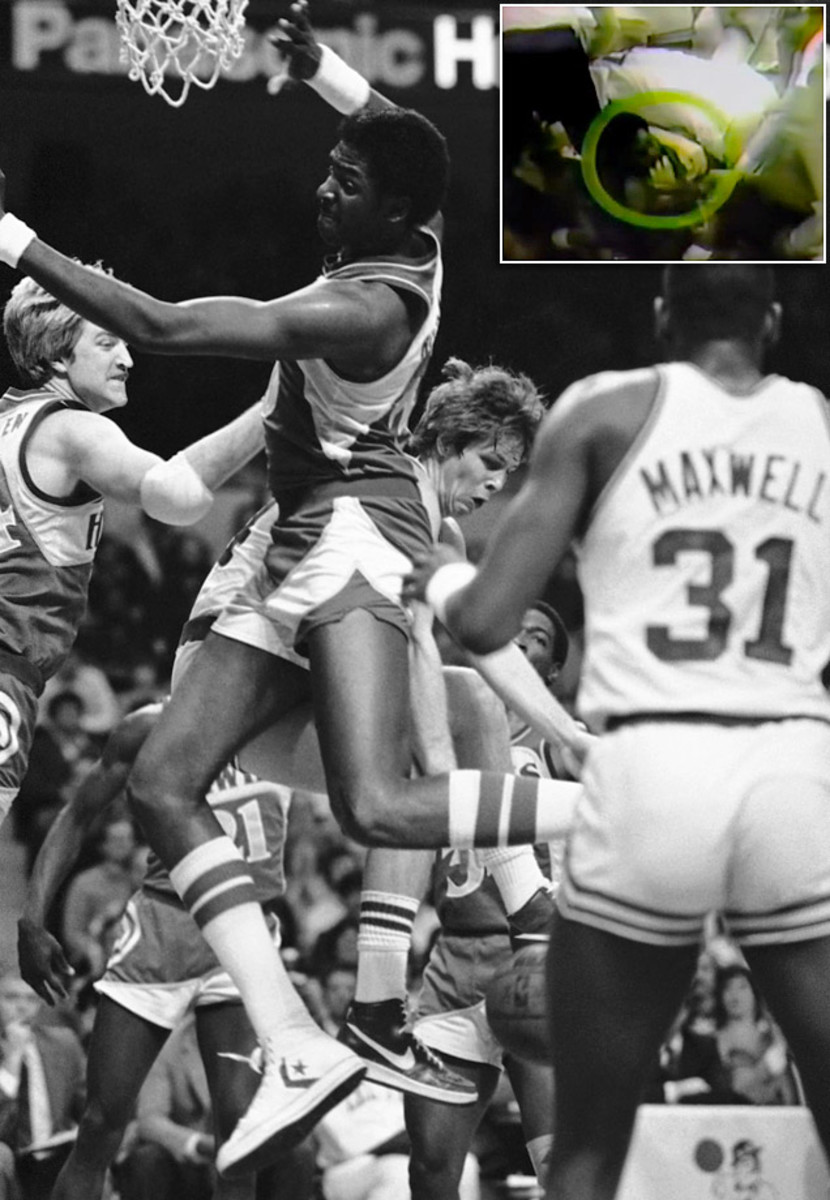
During 1983 playoffs, Atlanta's Tree Rollins bit Boston's Danny Ainge during a brawl. The headline in the papers the next day famously read, "Tree Bites Man."
Francisco Gallardo
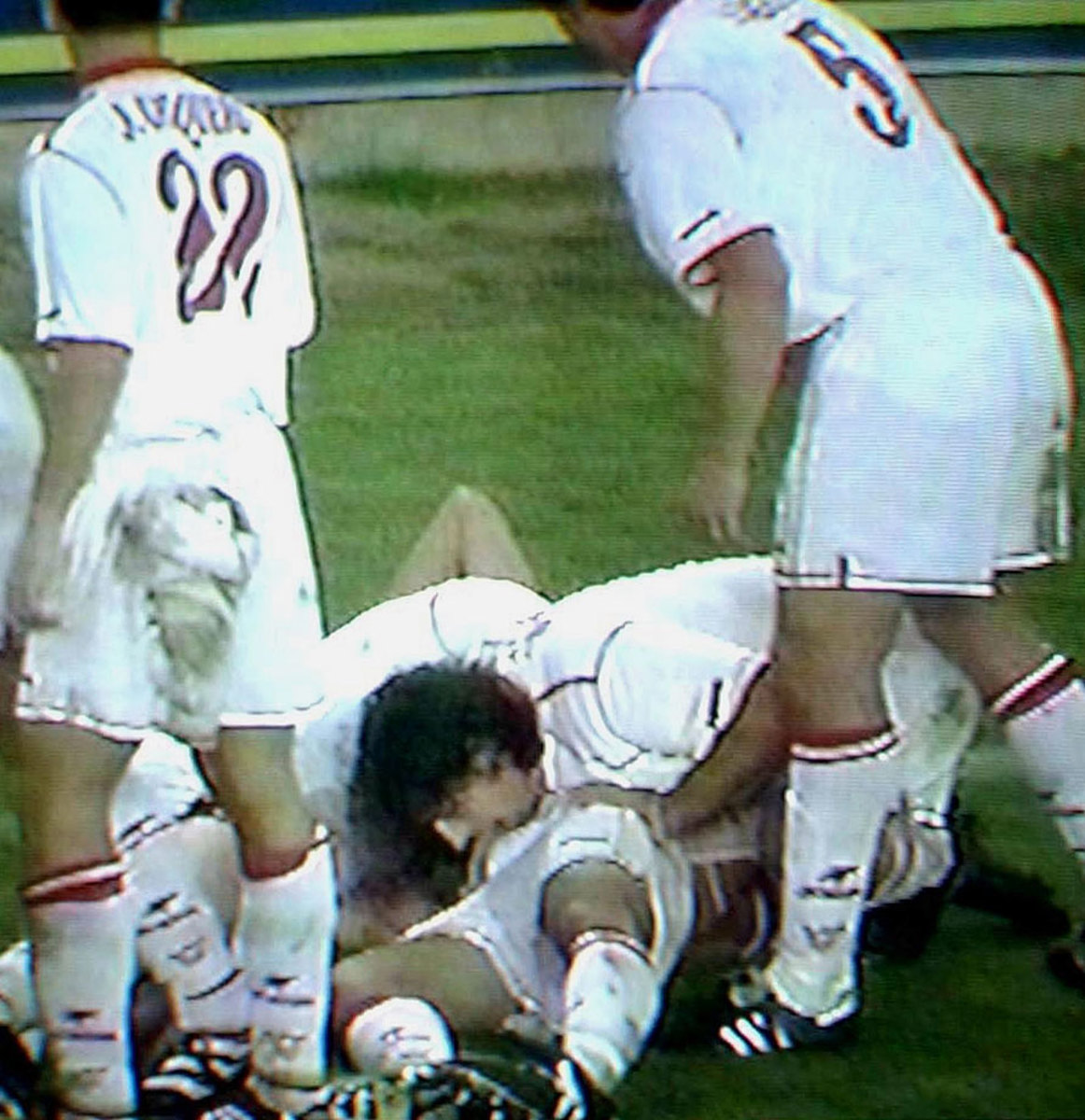
In 2001, Sevilla midfielder Francisco Gallardo celebrated a goal by teammate Jose Antonio Reyes by biting on Reyes' genitals. Gallardo was fined and suspended for the celebration by the Royal Spanish Football Federation, which said the move violated standards of "sporting dignity and decorum."
Muhammad Ali and Ron Lyle
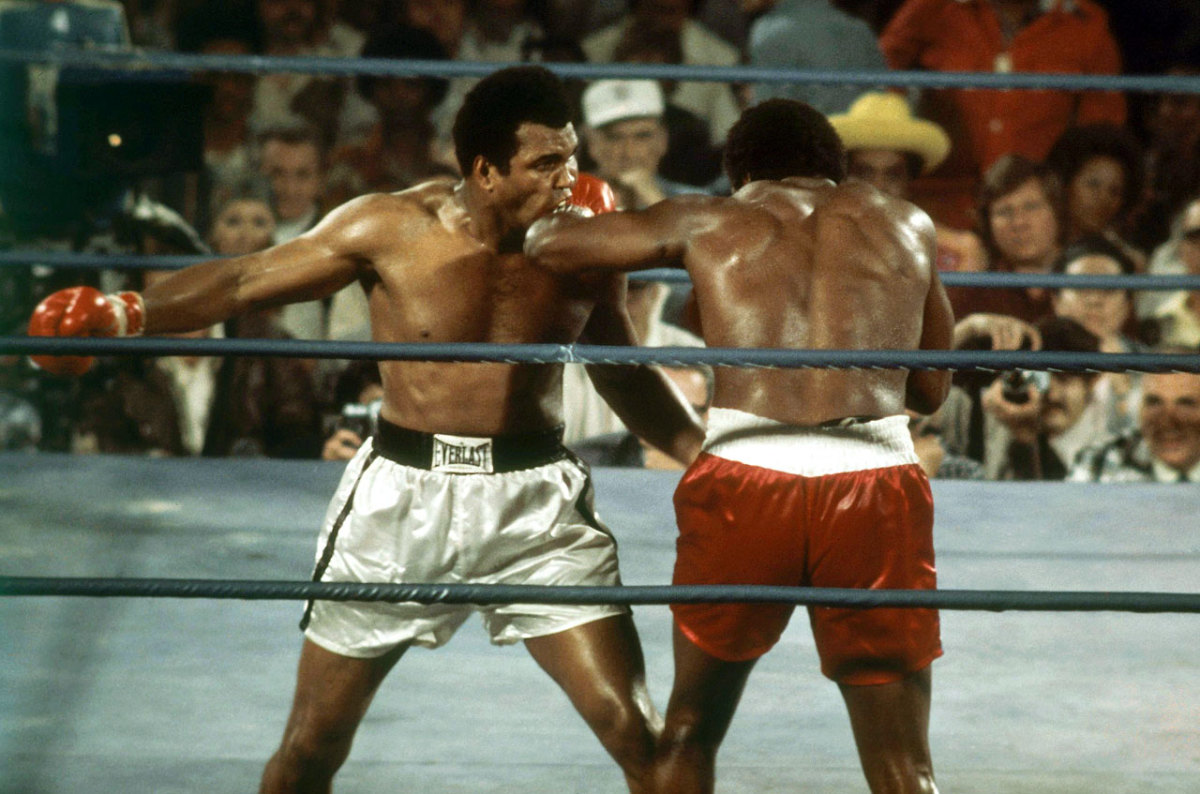
Muhammad Ali looks as if he is biting Ron Lyle's arm during their heavyweight bout in Las Vegas in 1975. Ali won with an 11th round TKO.
Jerry Tarkanian
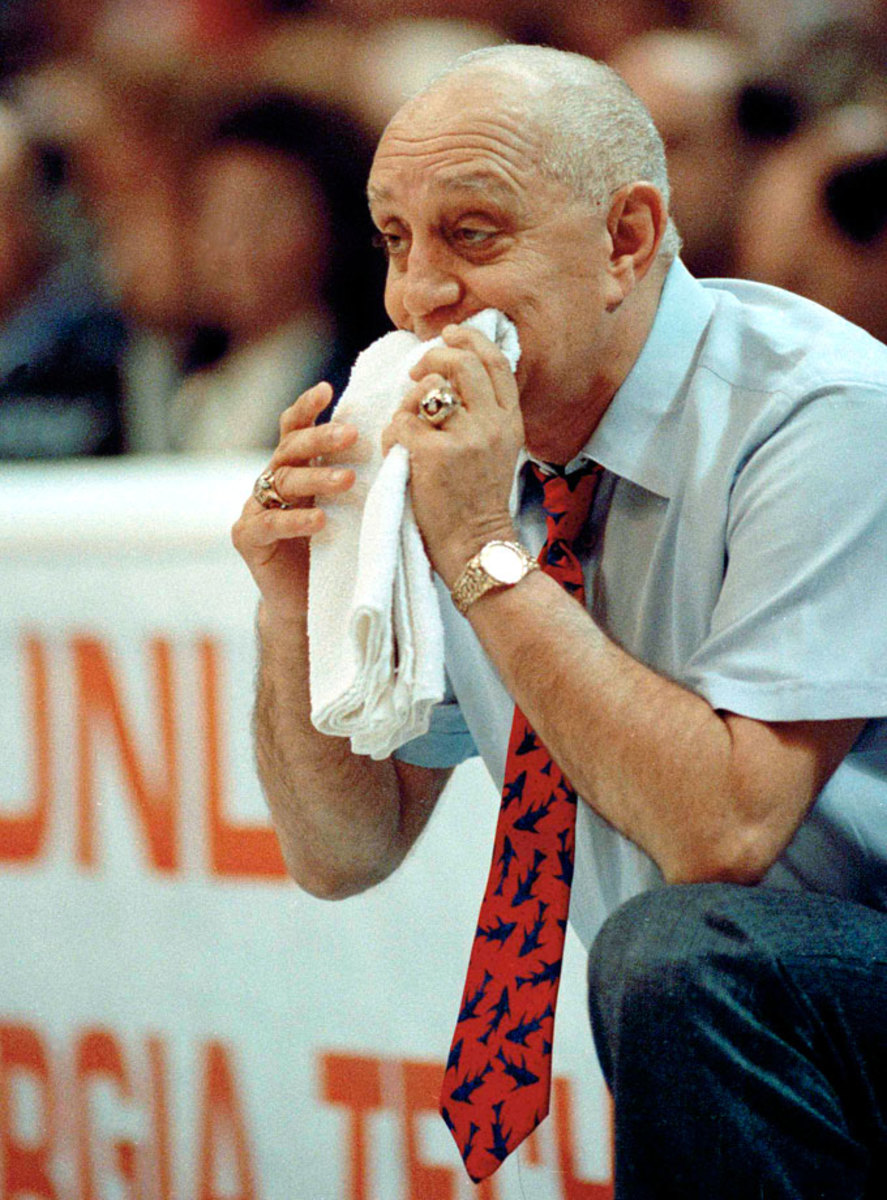
Jerry Tarkanian chews on his towel while watching his Runnin' Rebels take on Duke in the 1990 championship game. UNLV would go on to win 103-73.
Serge Ibaka
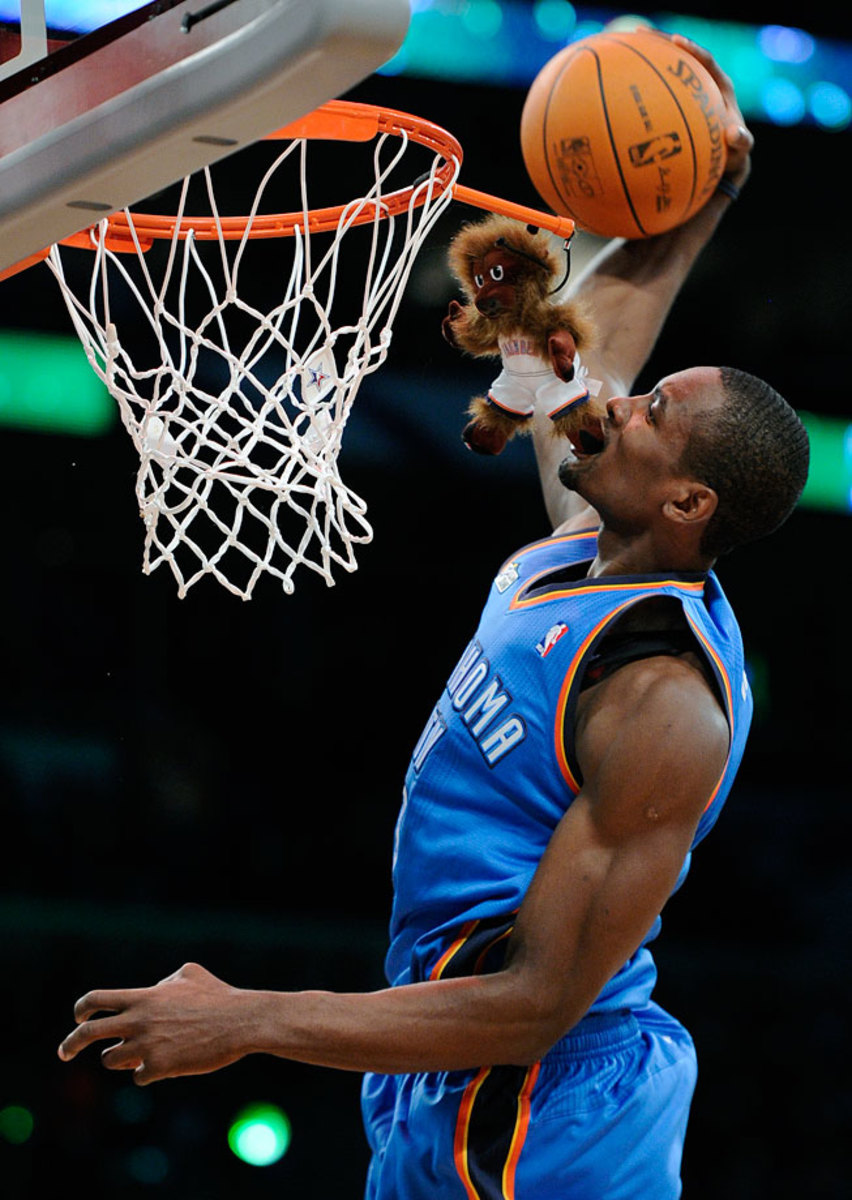
Thunder forward Serge Ibaka bites a stuffed animal during the 2011 NBA All-Star Saturday Night slam dunk contest in Los Angeles.
Kevin Barry and David Tua
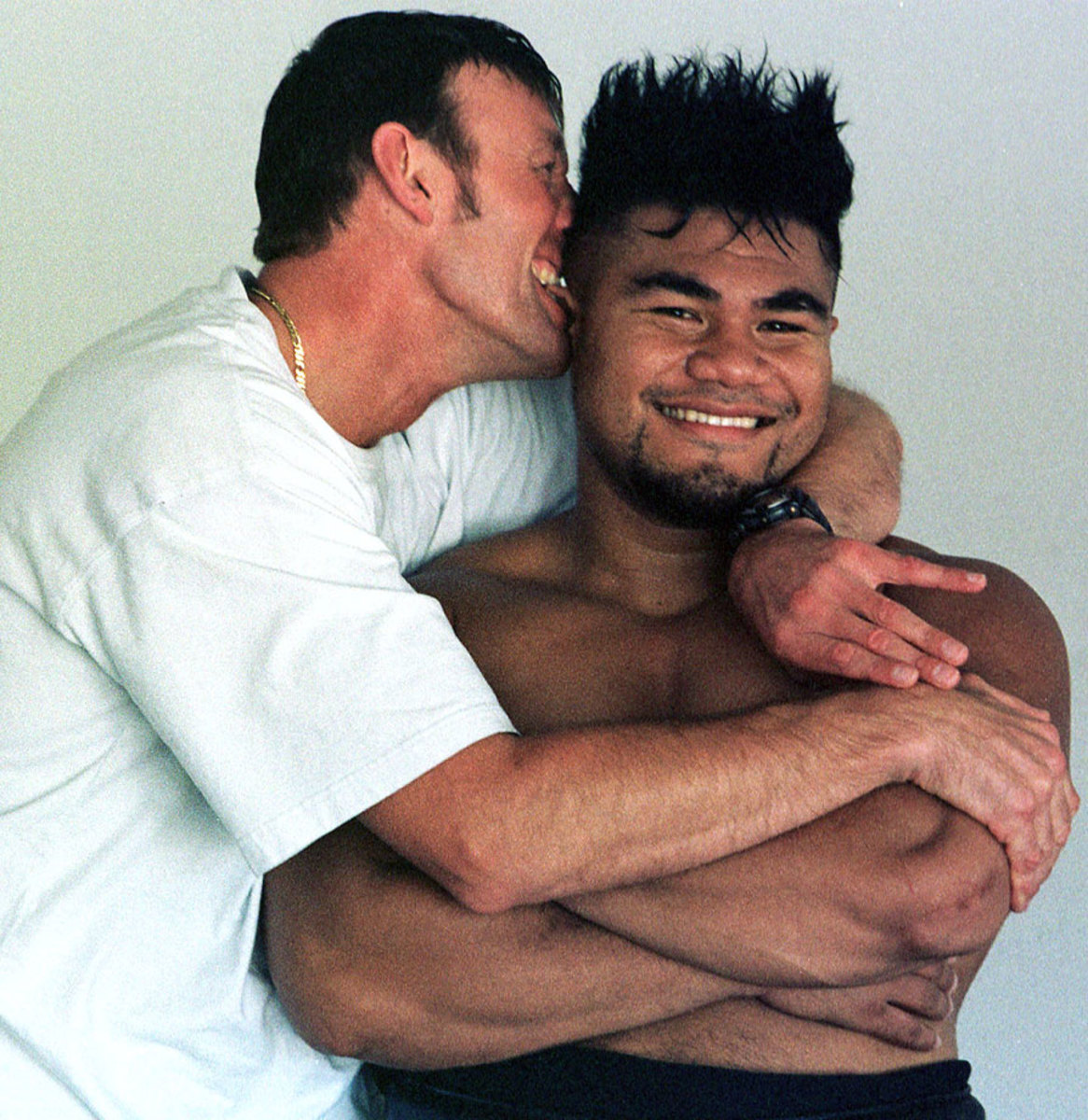
Manager Kevin Barry teases David Tua by nibbling his ear while he posed for photos at a training facility in Las Vegas.
Tim Hague and Joey Beltran
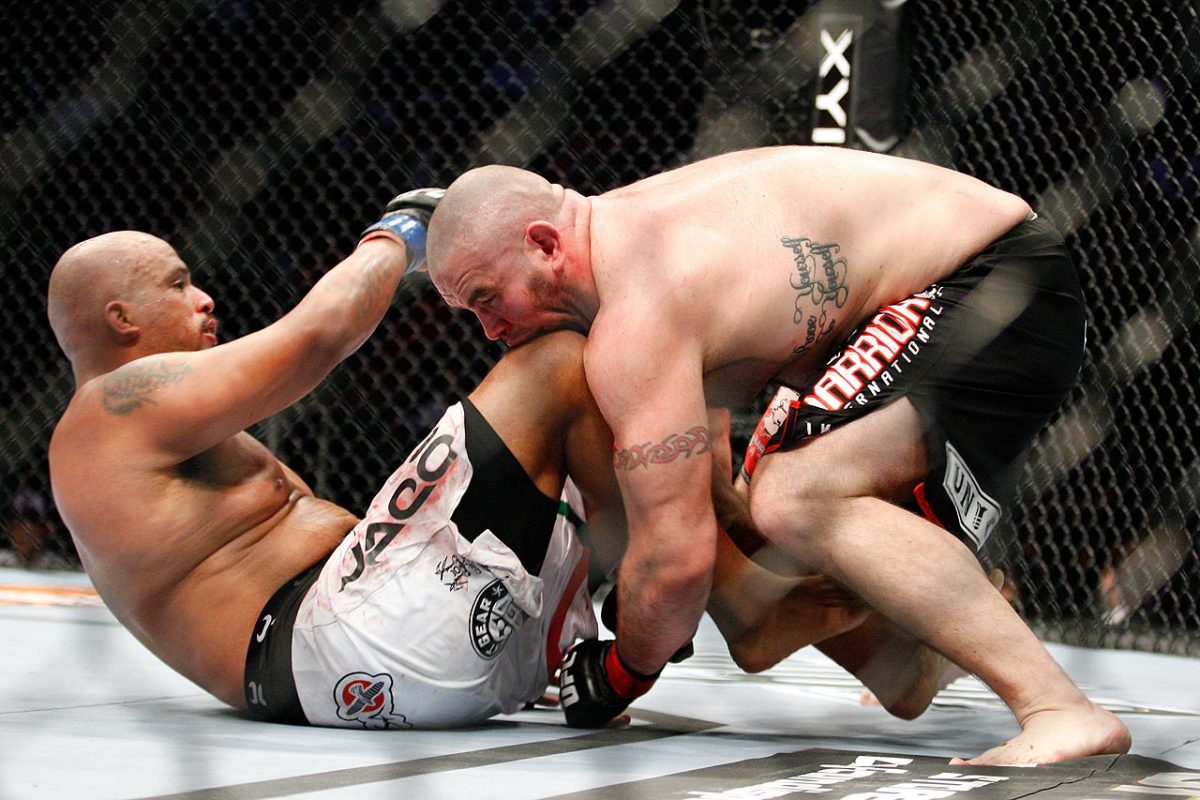
Tim Hague samples the knee of Joey Beltran during their heavyweight bout at UFC 113 in Montreal. Beltran would win by unanimous decision.
Fin and Anne Heche
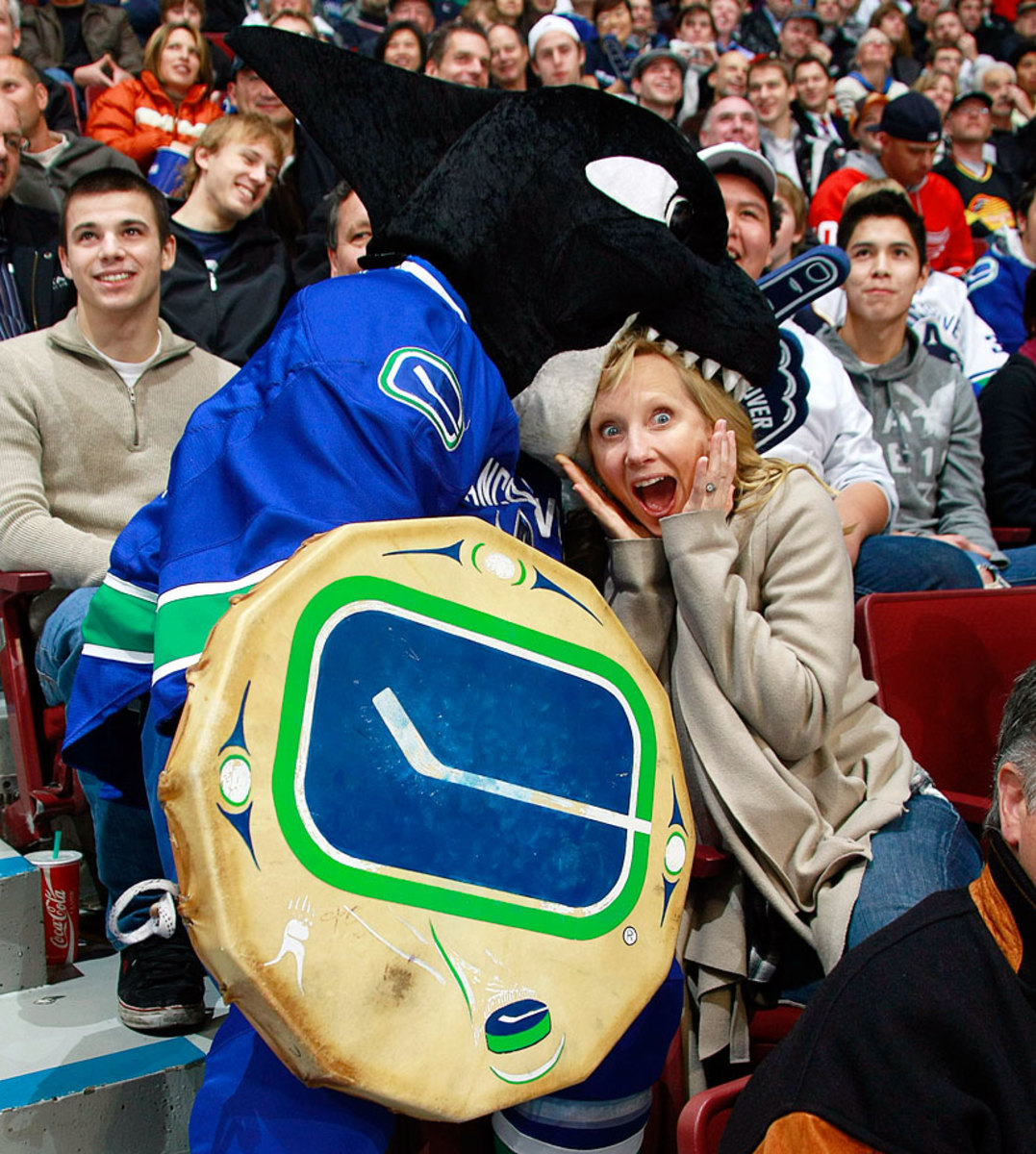
Fin, the mascot of the Vancouver Canucks, takes a bite of actress Anne Heche during a game at General Motors Place in Vancouver.
Kobe Bryant and Dwyane Wade
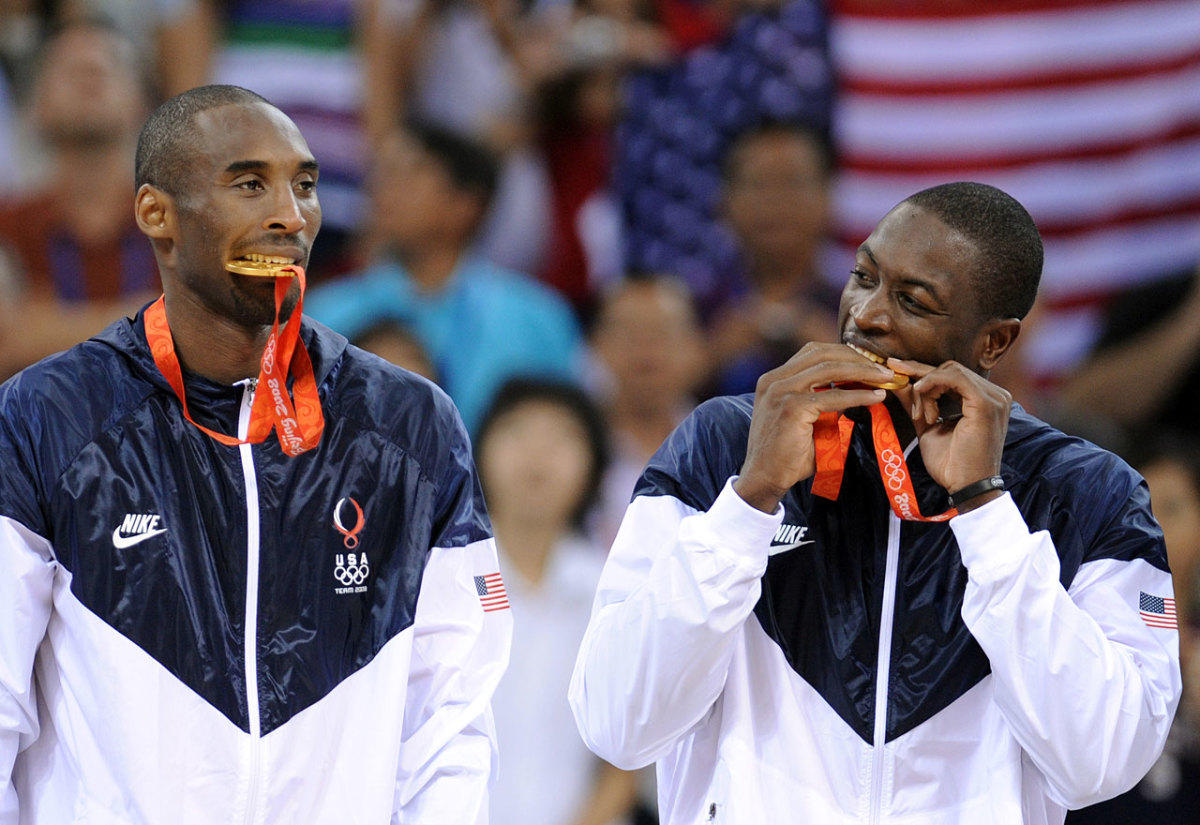
Kobe Bryant and Dwyane Wade test the authenticity of their medals after defeating Spain 118-107 to claim top prize.
Marc Lopez and Rafael Nadal
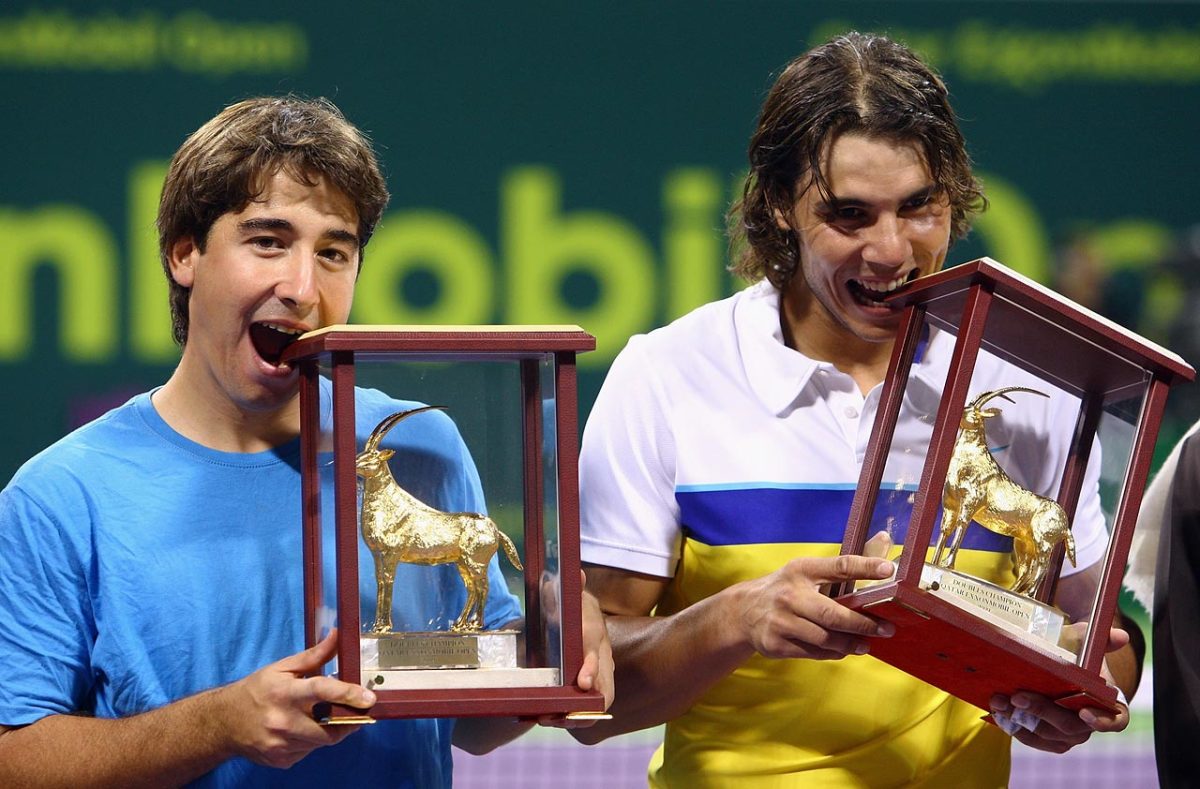
Marc Lopez and Rafael Nadal of Spain bite their trophies after defeating Daniel Nestor of Canada and Nenad Zimonjic of Serbia in the doubles final during the 2009 ATP Qatar Tennis Open in Doha, Qatar.
Michael Jordan
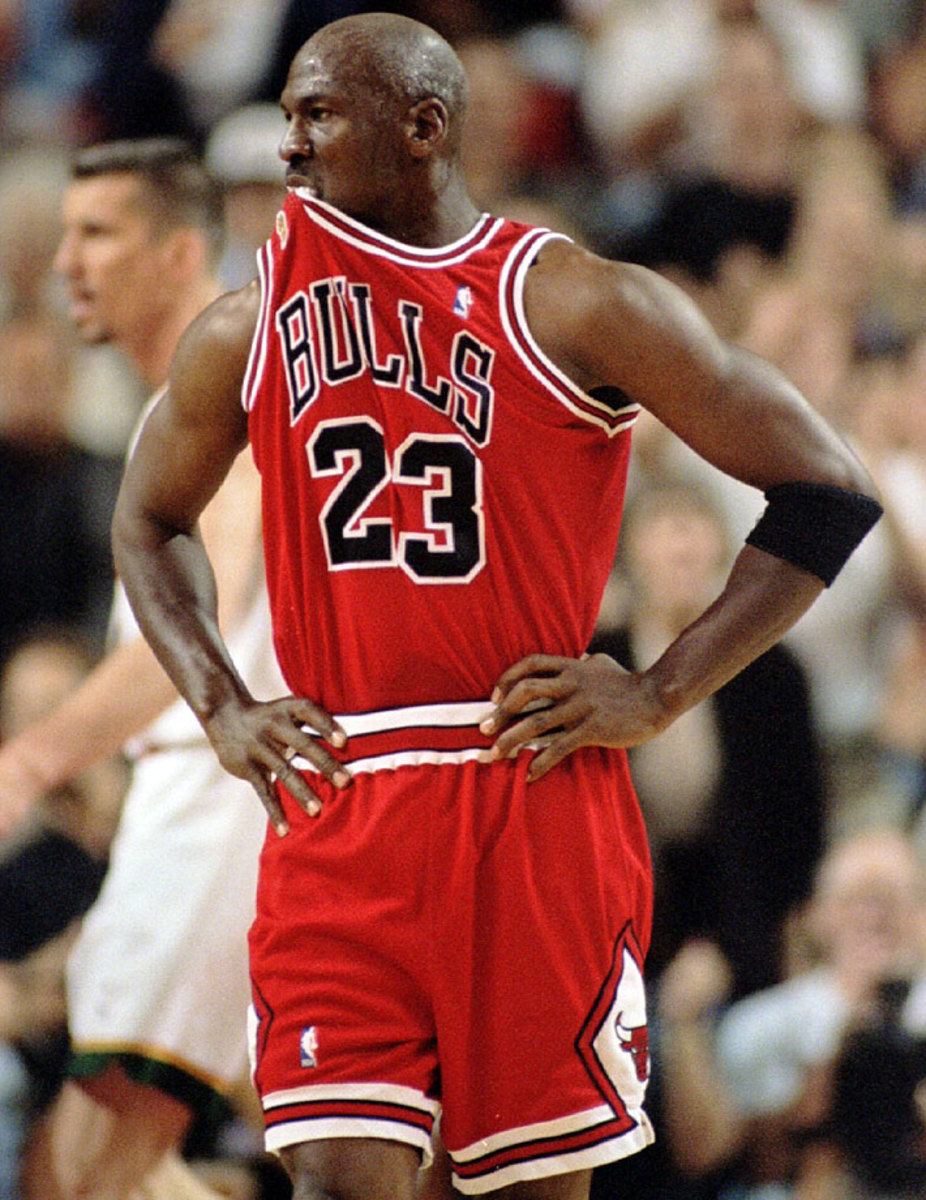
Bulls guard Michael Jordan chews his jersey following a call against him during a game against Seattle.
Alex Ovechkin
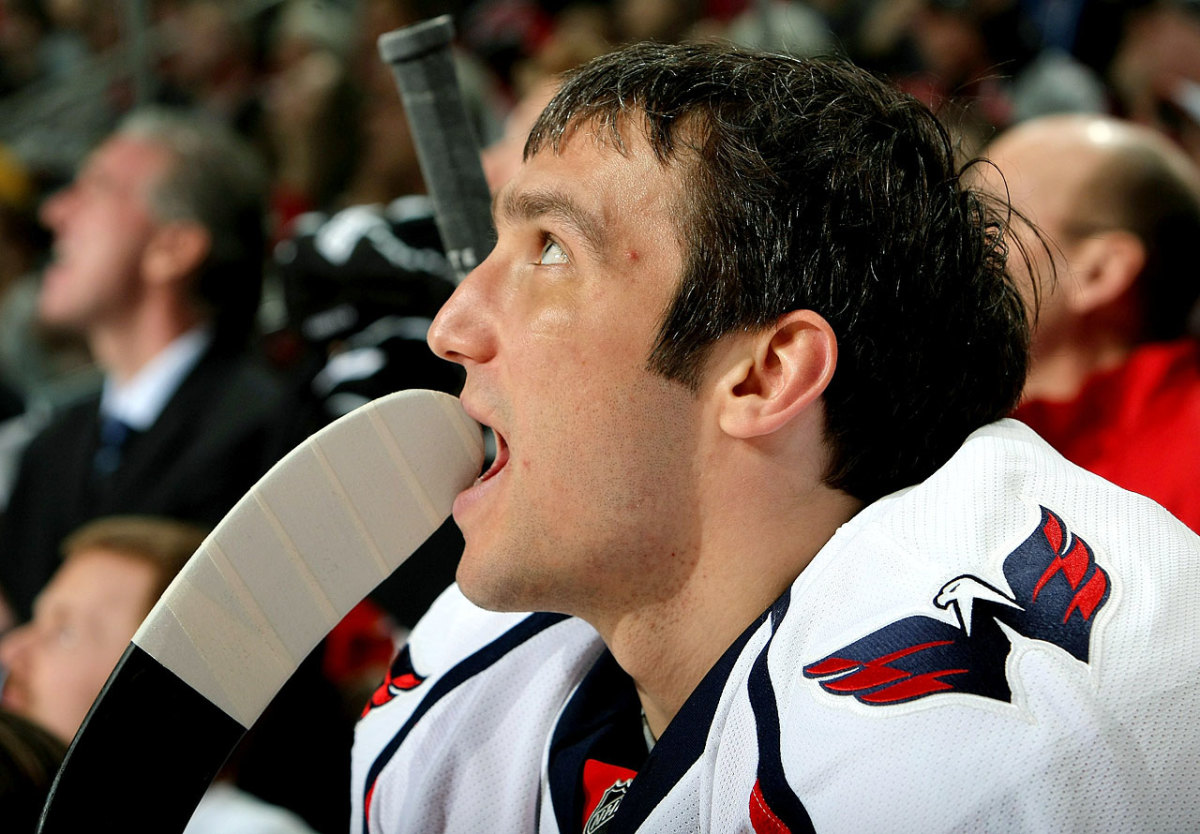
Alex Ovechkin tries out his stick during the skills competition of the 2011 NHL All-Star Weekend.
Tiger Woods
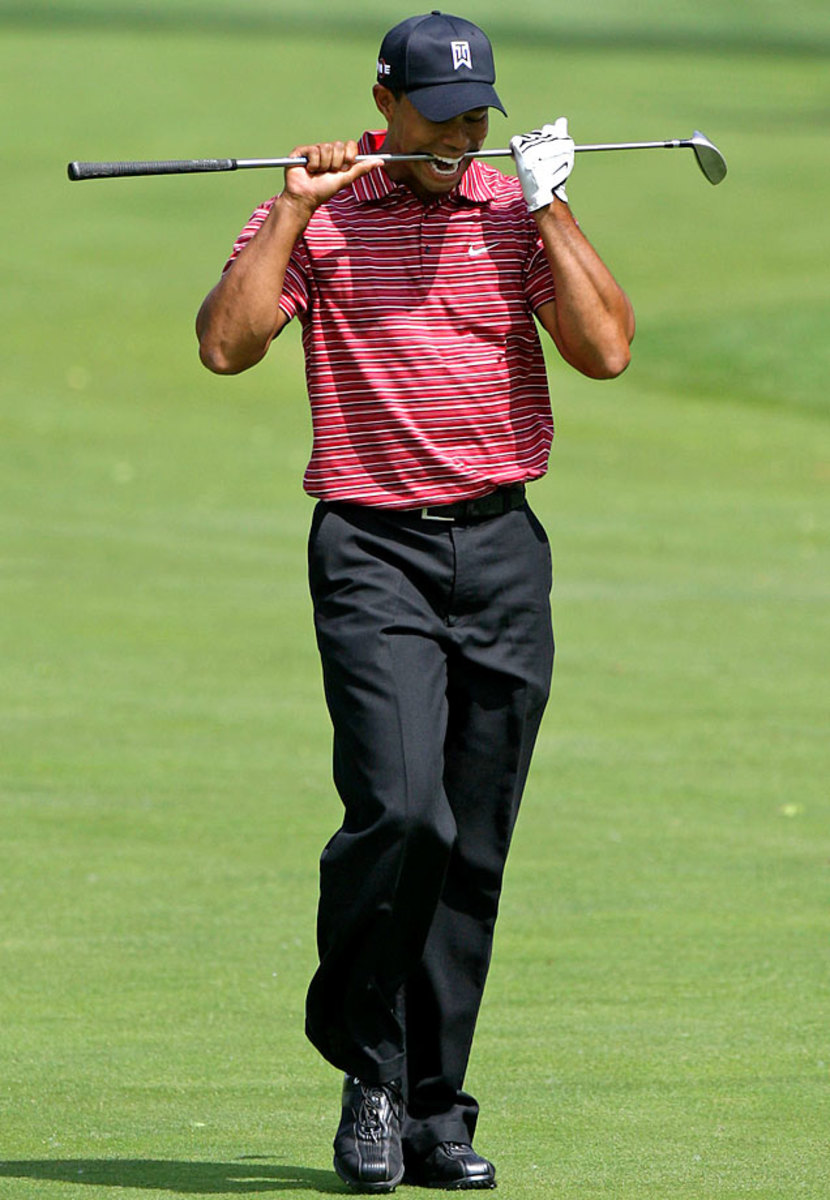
Tiger Woods bites his club after his second shot on the 11th hole during the final round of the 2009 Memorial golf tournament in Dublin, Ohio. Woods chipped in for eagle on the hole.
Jo-Wilfried Tsonga
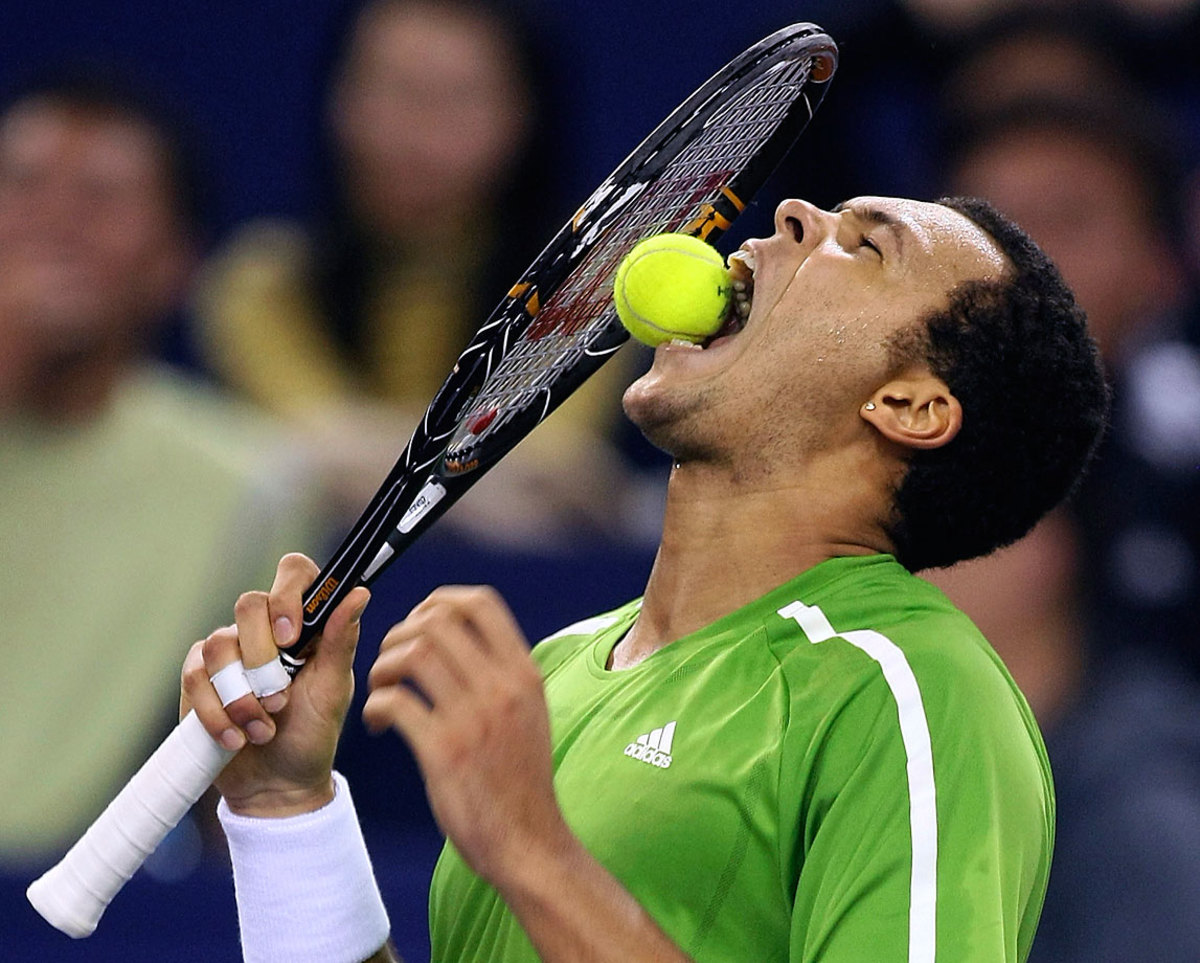
Jo-Wilfried Tsonga takes a healthy bite out of a tennis ball after missing a point against Juan Martin del Potro during the 2008 Tennis Masters Cup in Shanghai.
Dinara Safina
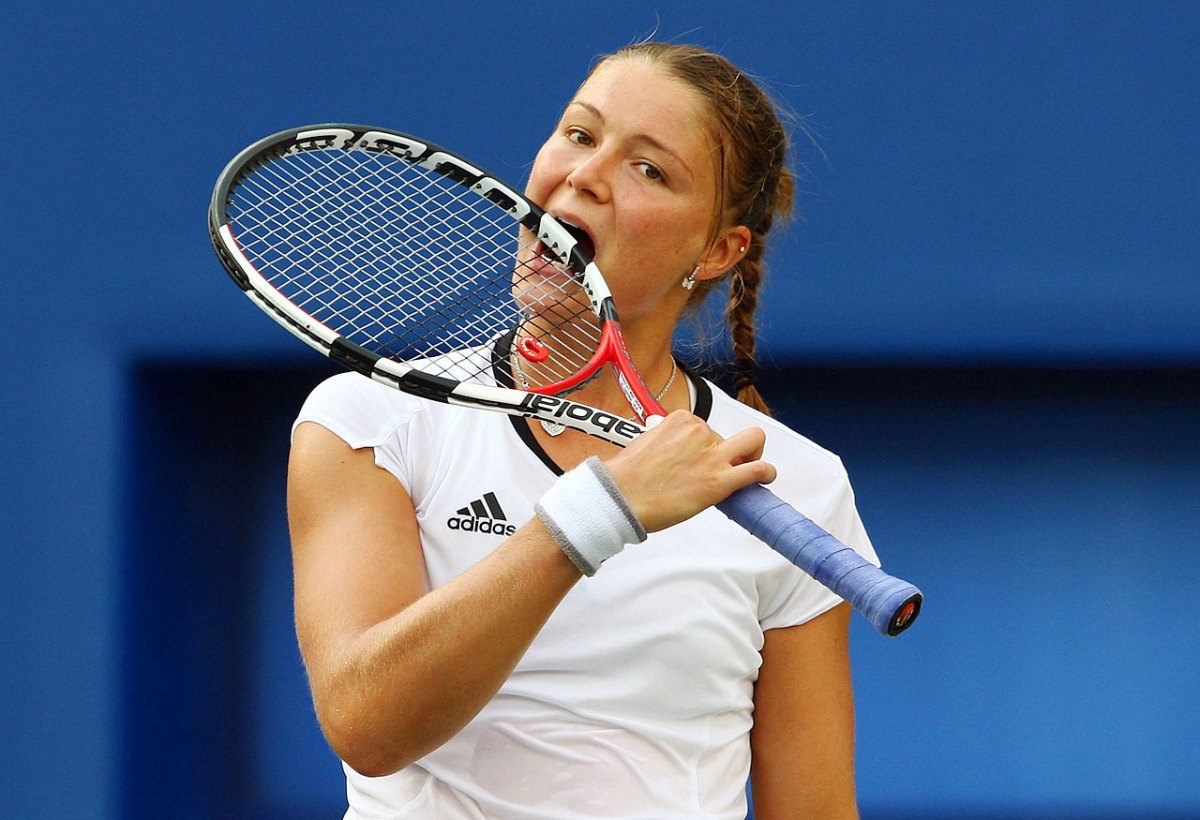
Dinara Safina chomps on her racket while taking on Li Na during the singles semifinal of the 2008 Olympic games in Beijing.
The Raptor
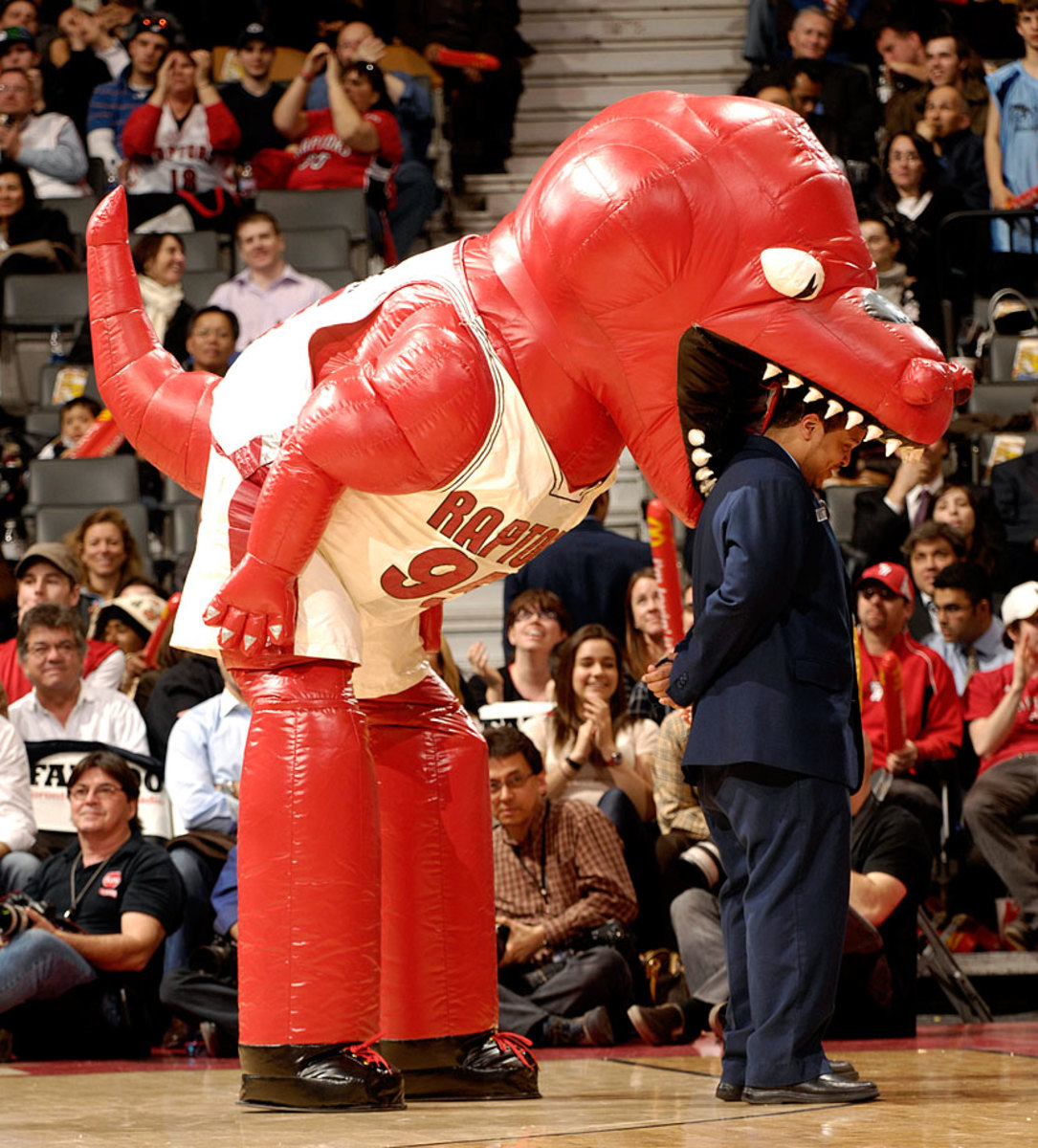
The Raptor devours an usher during a game between Toronto and Miami.
Jay and Chase Buhner
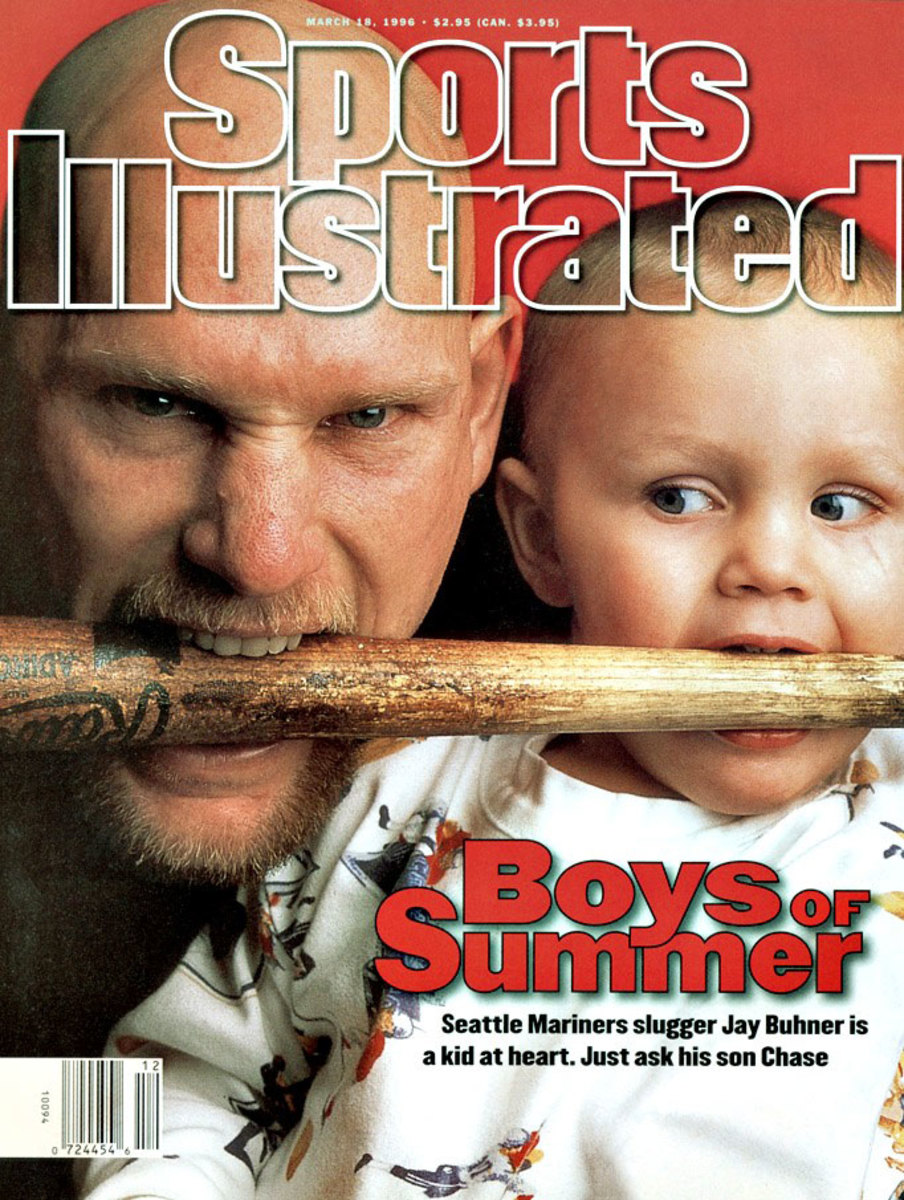
Mariners rightfielder Jay Buhner and son Chase share a bat while appearing on a 1996 SI cover.
Anton Khudobin
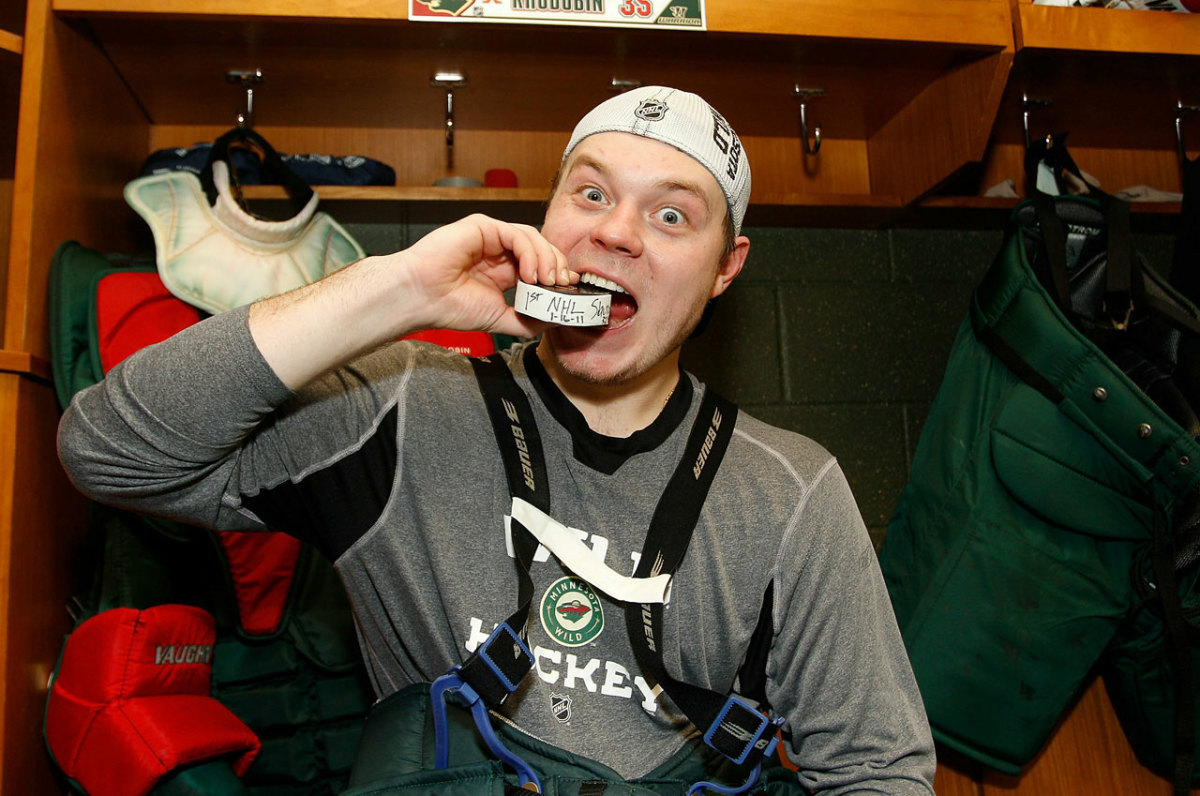
Minnesota goalie Anton Khudobin samples the puck after beating Vancouver 2-0 to record his first career shutout.
Sam Walker
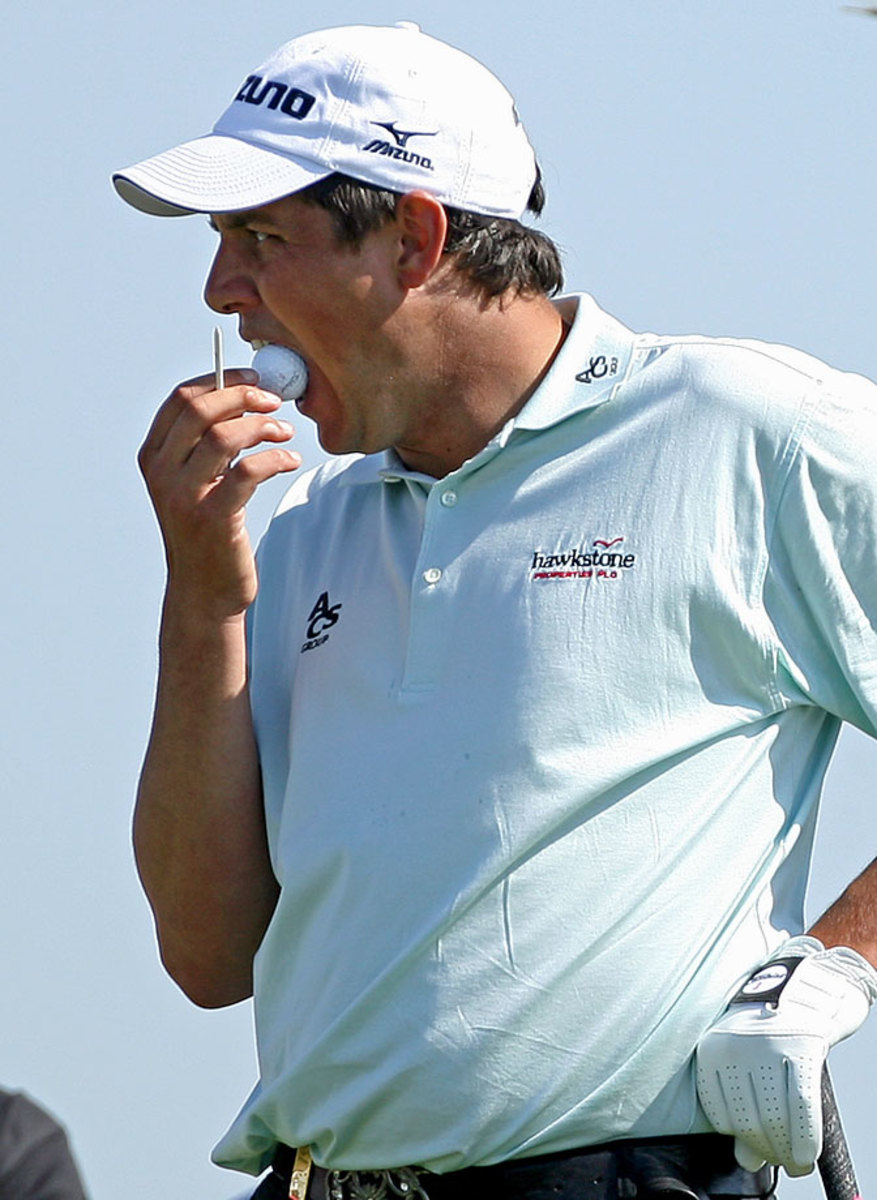
Sam Walker chews on a golf ball as he waits to tee off on the third hole of the Portugal Masters.
Carlos Quentin
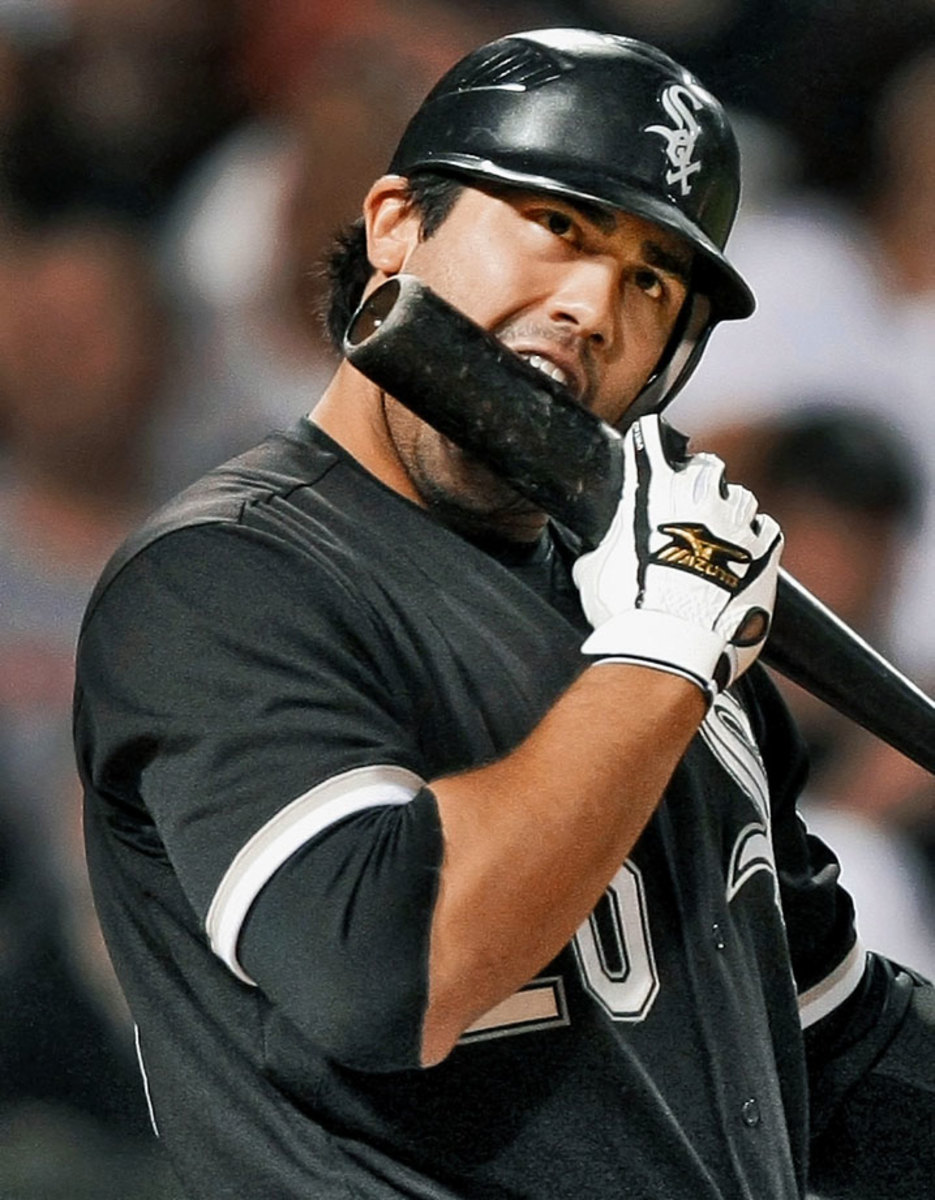
White Sox outfielder Carlos Quentin digs into his bat during a game against the Mariners.
Mardy Gilyard and Ricardo Mathews
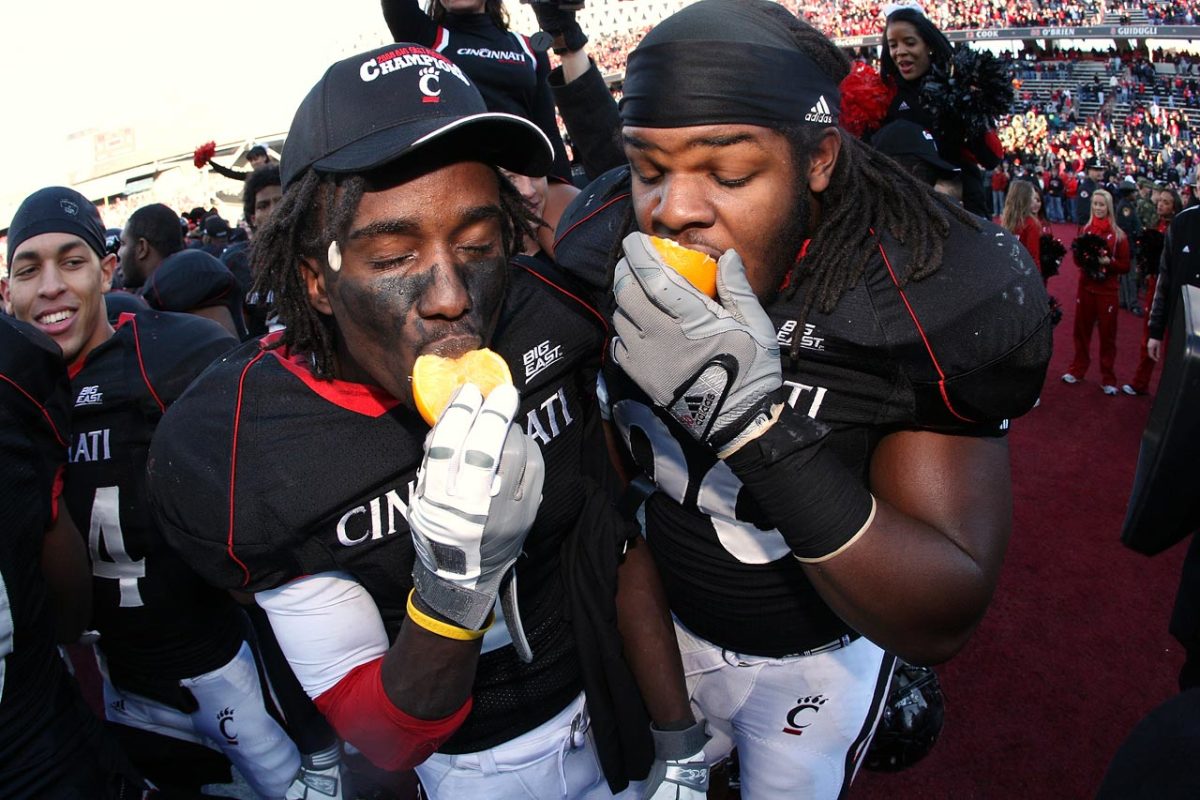
Mardy Gilyard and Ricardo Mathews of the Cincinnati Bearcats enjoyed some oranges after a 2008 victory over Syracuse. The Bearcats defeated the Orange 30-10 to claim the Big East title and a spot in the Orange Bowl.
Mike Francesa and Chris Russo
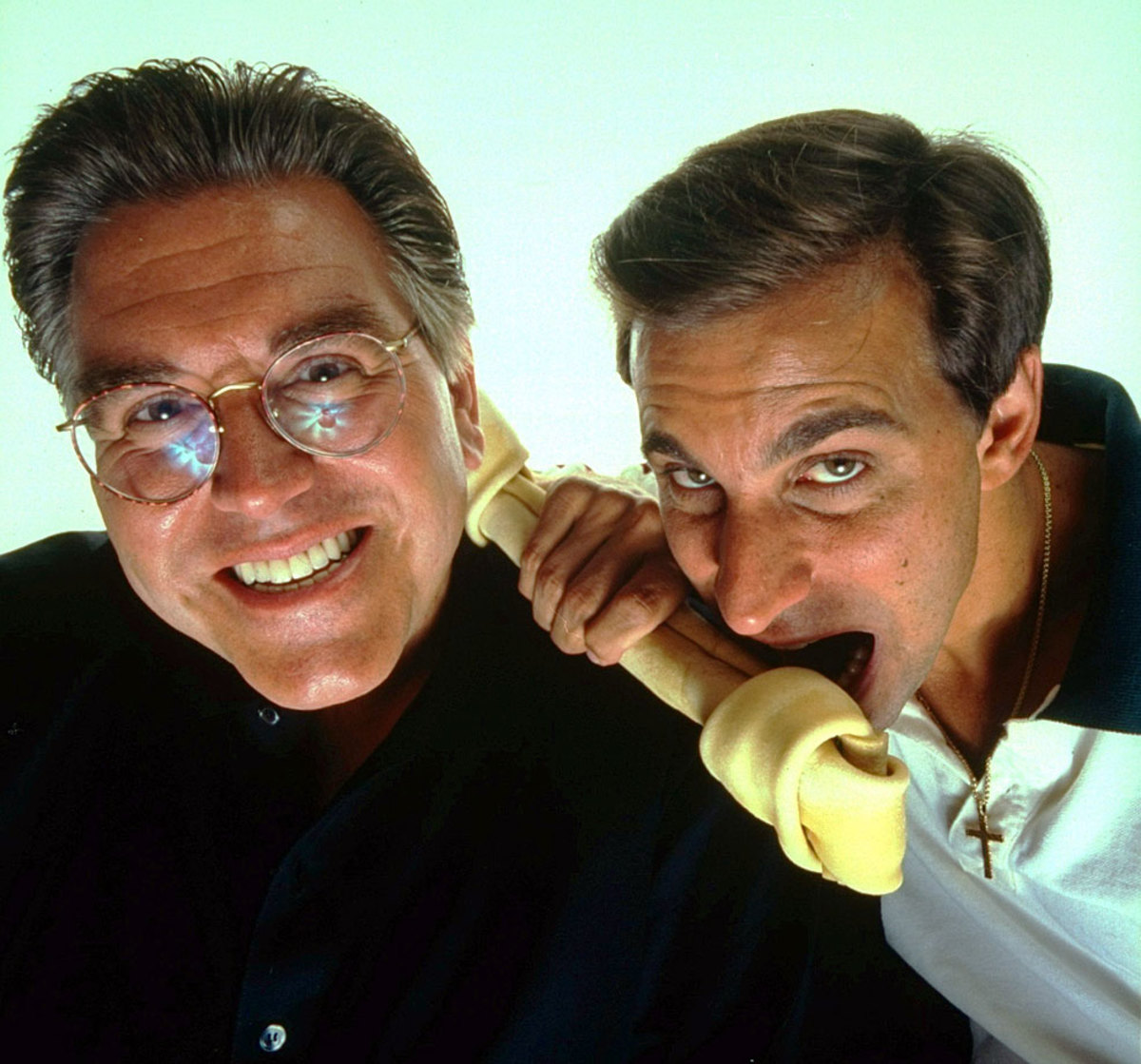
Former WFAN radio personality Chris "Mad Dog" Russo with partner Mike Francesa. The two hosted a radio show together in New York City for two decades.
Oliver Perez
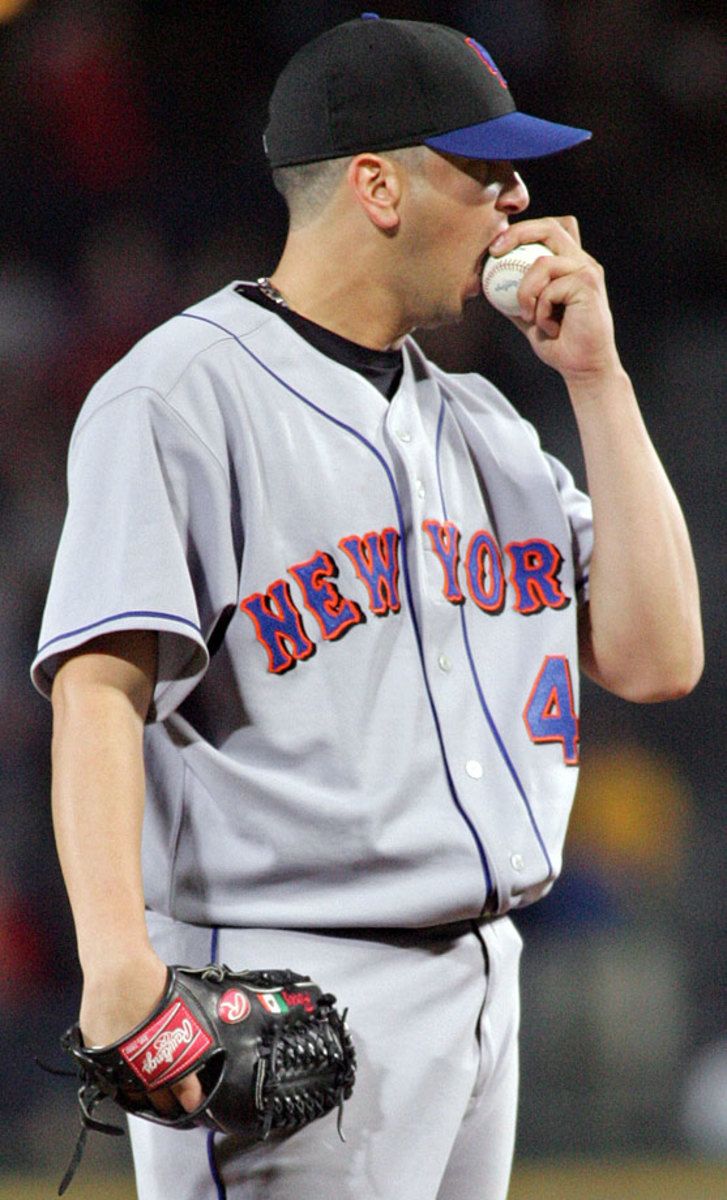
Mets pitcher Oliver Perez shows his disgust after giving up a run to the Braves in 2006.
Uga VI
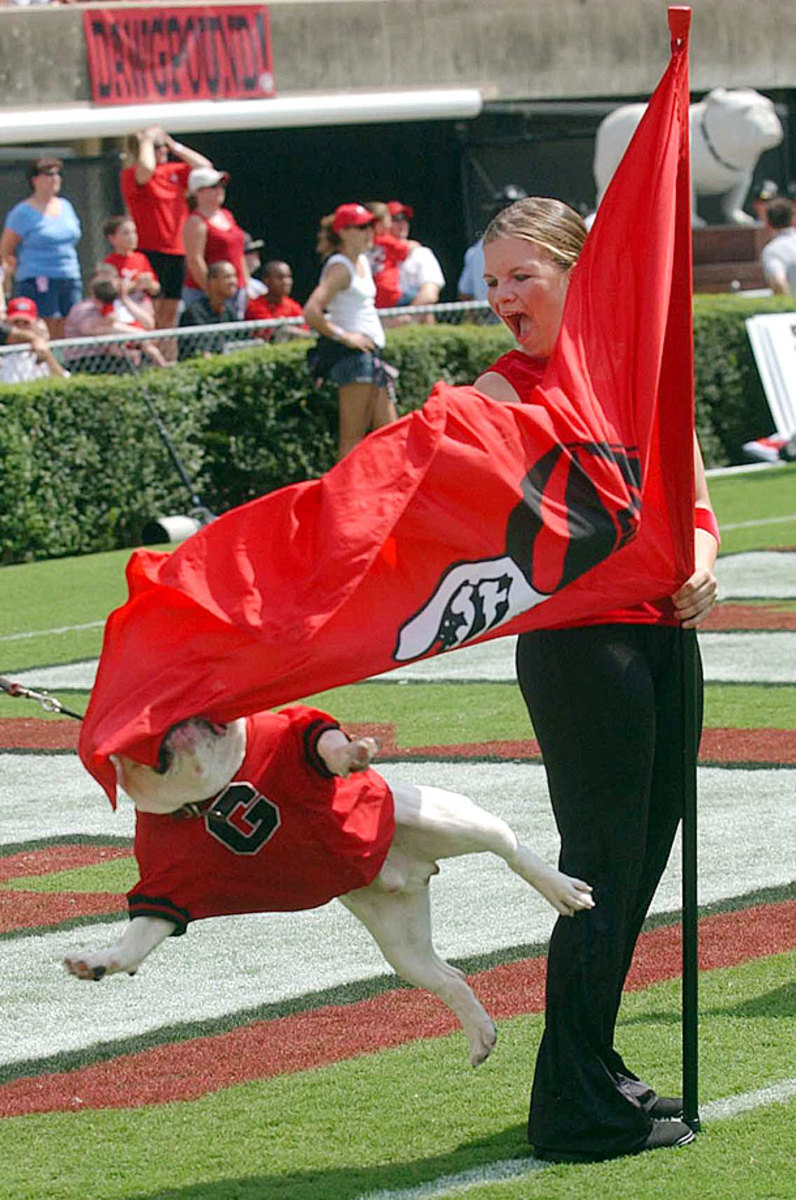
A member of the University of Georgia color guard reacts as UGA VI leaps at a flag before the start of Georgia's 2004 game against Georgia Southern. UGA V made headlines in 1996, when he lunged at Auburn receiver Robert Baker after Baker scored a touchdown.
Vince Young
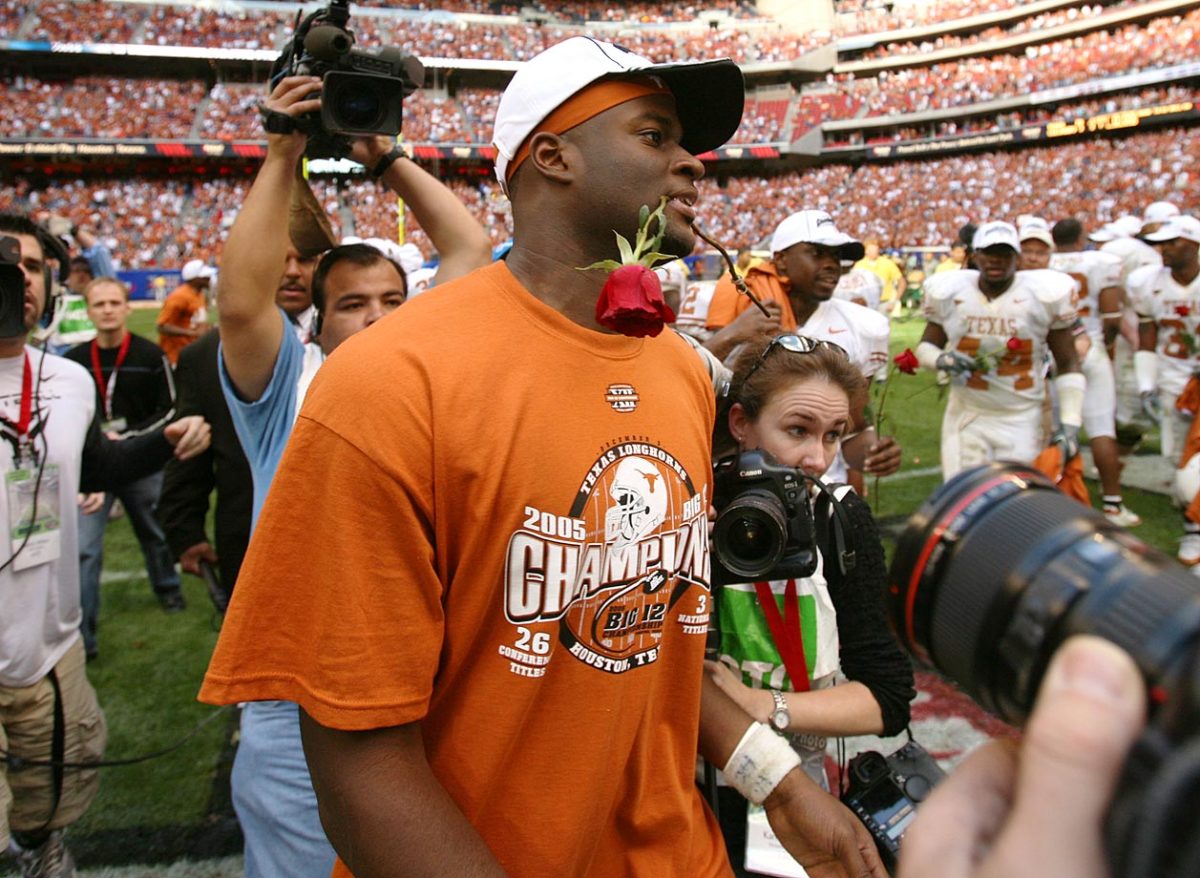
Texas quarterback Vince Young clenches a rose after the Longhorns defeated Colorado to advance to the 2006 Rose Bowl.
Paula Creamer
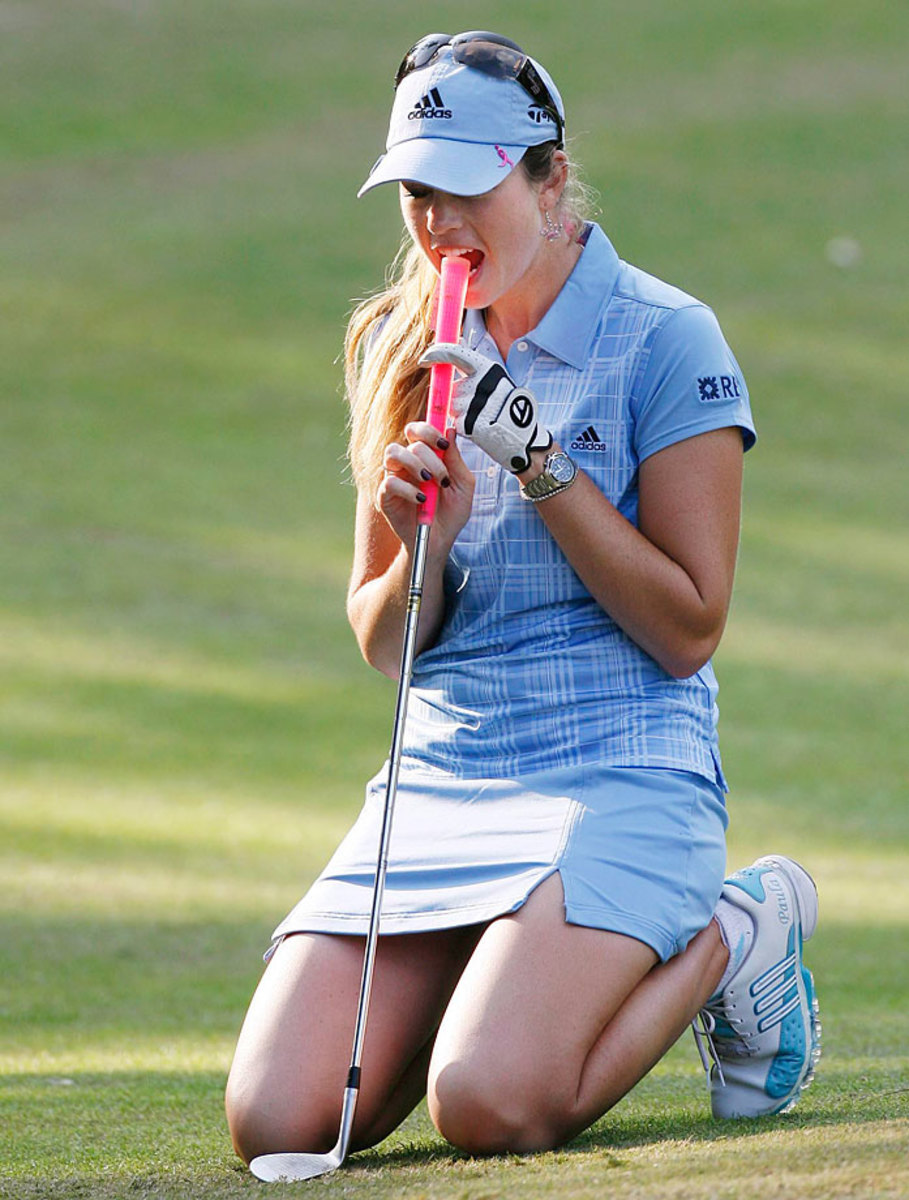
Paula Creamer bites her club after her chip shot on the 18th green rolled in for a birdie during the third round of the LPGA Tournament of Champions in Mobile, Ala.
Potito Starace
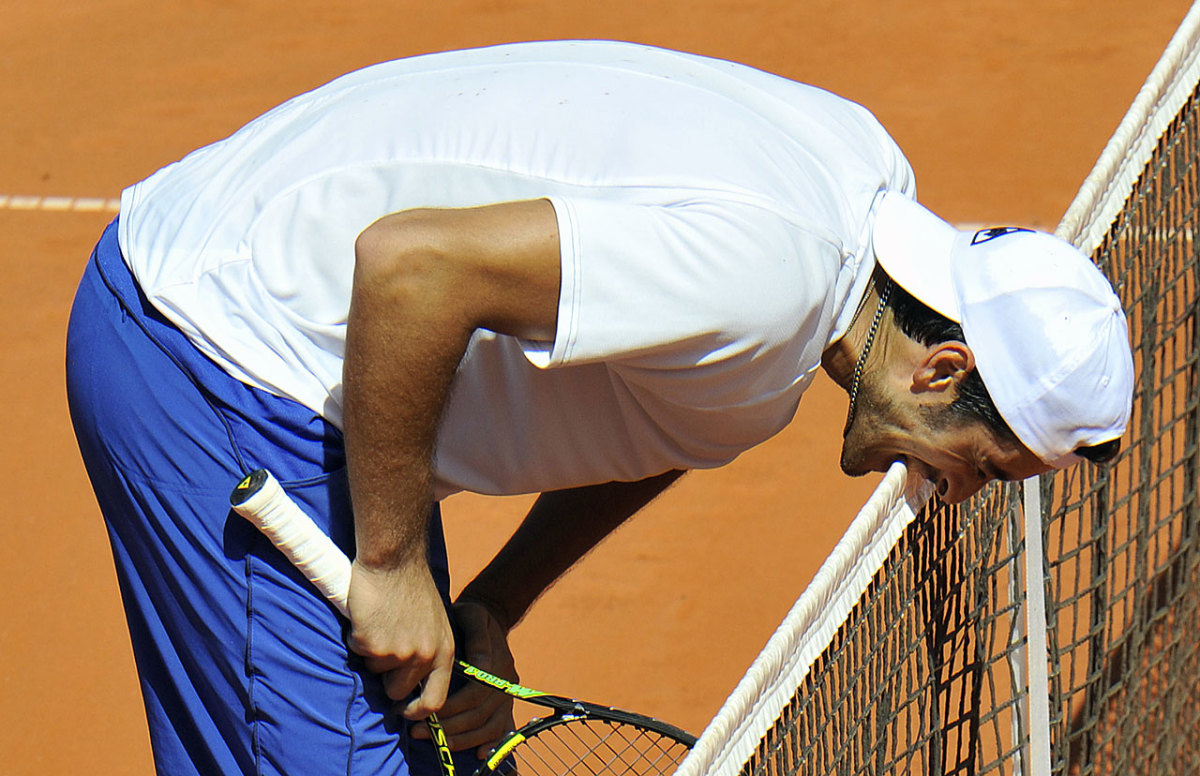
Potito Starace samples the net after missing an easy shot during his semifinal match against Juergen Melzer at the 2008 Austrian Open in Kitzbuehel, Austria.
